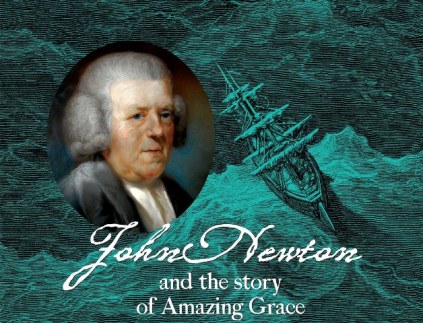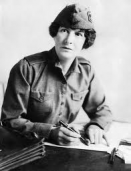
26. January 2014
EVANGELINE BOOTH
WHO WAS IT THAT KISSED ME?
“Dear friends, let us love one another,... "
1.John 4.7
See video of Evangeline Booth
Biography Evangeline Booth:
Evangeline Booth stood outside a court building and watched various prisoners that came out from there. A moment ago she had heard someone in there shouting, squalling and swearing, and now she saw a feisty looking woman being led out of the courtroom accompanied by six police officers. Two went in front of her and two others behind her, while two held in her arms. The woman struggled to get free. The clothes she had on was torn and full of holes, her hair was woolly and bristly, and her filthy face was clotted with blood. What could she do for her?
Evangeline knew there was no time to preach to her. It would be a crime against her to give her money, and to sing for her would be useless. In a minutte this woman would be far away. Powered by a sudden impulse Evangeline ran onto this dirty, cursing and ugly smelling woman and kissed her.
The woman slipped her hands loose and searched with a wild expression the field with her eyes." Who was it that kissed me?" She shouted. "Who kissed me? Nobody had done that since her mother died."
She raised her torn apron to her face and burst into heartbreaking tears, and as a mild lamb she followed the officers into the wagon, which drove her to jail.
Some days after this incident Mrs Booth went on a prison visit to see the woman. Her face was now clean, and she now looked quite handsome. She looked at the stranger and asked, "Do you know who kissed me?"
Then she told Mrs Booth her life story. "When I was a baby my father died, and when I was 7 years old my mother also died. She died in a dark backyard in a poor neighborhood. When she was dying she called to me, took my small face between her hands and kissed it and said: "My poor little girl! O God, be merciful to my little girl and take good care of her!"
From that day until now, no one has kissed my face until the other day."
Then she asked again: "Do you know who it was that kissed me?"
Evangeline Booth replied: "It was me."
She told this lost woman of God and how he loved her so much that he was willing to die for us on the cross, where he wore all our offenses. He was wounded and disabled, so that he could save everybody from their sins.
This was something completely new. The woman had never imagined that Jesus loves so much. She opened her heart to Jesus, and before she got out of prison, she had also learned many other prisoners to love Jesus.
All this happened because Evangeline Booth kissed her. Fantastic, and what a beautiful and good deed! Evangeline Booth was the daughter of the man who founded the Salvation Army, William Booth.
Let us show our fellow human beings our love and learn the many unhappy and broken people that God truly is a God who saves sinners.
E. Campbell translated
START
ANDERS NORD
TV programme about the below events (in Norwegian)
Who is this ? Yes, this is the name of the man who lived in the house that was completely intact and undamaged after the great fire that devastated the Norwegian city, Ålessund in 1904, while the vast majority of the approx. 1,100 houses, which then made up the city at that time, was laid in ashes. Here comes the story of the events that unfolded this tragic day in January 1904.
The house was one of that era plain wooden house, like all other houses in Ålesund. The proprietor of the house was called, Gunnar Walde. Therefore , the house is today called, "The Walde-house ". It is located in the town of Ålesund, where all the houses were laid in ashes. Only this one house survived - well not only survived, the house was completely intact and undamaged after the great fire, not even the paint on the woodwork had been seared!
For this reason, the house was for many years turned upside down and subject to many scientific studies and many peculiar theories came to light at the time. However, there never came any rational explanation of the efforts.
In 1913 the house was preserved. The municipality made the decision to conserve the house, so anyone who so desire for posterity should be allowed to visit and see the house in Grensegata 2 in Alesund .
In February 1986, the Norwegian State TV, NRK transmitted, a documentary of the TV from the annual commemoration day in Ålesund. It was shown in the TV programme, " Tour Norway". The viewers were able to witness that human crowds visited this peculiar place at Fjellgata and Grensegata.
As the tour guide pointed to the Walde-house, he exclaimed to ridicule the story: "And here we see the house that God saved, because the man who lived there, would not move out ... "
This broadcast made an elderly woman from Trondheim protest vehemently. Among other things, she told NRK and those who were responsible for the broadcast, to be ruthless and reckless when they talk about " the house that survived the great fire ." She also proved to be the right person to come up with such protests, since her mother was Anders Nord's daughter!
Klara Skjøstad is the name of this woman, who then is the grandson of Anders Nord. Since we wanted to visit her, we got Birger Forsmo to help us with this because he knew large parts of the West Country, and now in January 1993 we experienced as final the pleasure to chat with her at her home in Trondheim.
The interview with Klara Skjøstad was like talking to a teenager. She presented for us family photos and told us many strange occurrences from the great fire in 1904.
" Grandfather ," said Clare , "was a man of faith of the heart. He was a man of faith and a man of prayer. His wife, Reginae, didn't have the same deep faith and relationship with God, because when the fire really began to grip, and grandfather said that the Lord had promised to protect them and the house, she was still terrified. She wore everything that had value outside to save it from the flames.
Eventually, as the flames were right outside, grandmother and some neighbors tried to take Grandpa by force! But grandfather opposed and would not be out of the house.
He had received something special from God, if not such a peace and stubbornness had not been humanly possible, at least not in one such situation.
The fire-ravaged the town of Ålesund for 16 hours that afternoon of 23 januar, 1904. After the flames had subsided and people could inspect the area and the city, it was only grandma and grandpa's house that was left intact and untouched. There was no sign of any fire at all, "says Klara Skjøstad.
Kristian Bugge, who has written " History of Ålesund" mentions this event on page 320 in his book with these words:
" In a house in Grensegaten lived an old man who had asked God protect the house he inhabited, so that it did not burn. And he was so sure that God heard him, because he insisted on staying in the house. When the family and the others, who lived in the house, had not the same faith, they took him by force out of the house. But when the conflagration had died out and it came for a day, yes, it is remarkable that all the houses in this area had been swallowed by the flames and stood back in ashes, but this house was left alone, totally unscathed, and it still stands to this day, despite the fact that it was a wooden house, like all other houses in this town."
Harald Grytten, who has written and published the book "Alesund tells" tells from page 45 of a photograph, he mentions the following:
"Another peculiarity of the picture is the house that is in front. This is the well known, Walde-house on the corner between Fjellgata and Grensegata, which was spared from the flames, while all other houses in the surrounding area was prey to the flames. It is said that one of those, who lived in this house, would not leave the house. He was so certain that the house would survive the fire. But his relatives, who were not equally strong in the faith, got very busy saving what could be saved. But they couldn't get the man out of the house, only his clothes and some of the house's contents. This they carried to the park, where everything was devoured by the flames. But the house stood through the fire, completely intact. "
The weird thing is that nobody has subsequently turned to Anders Nord even to ask him what happened and what he thought about it all. People in large parts of the West Country was very puzzled, but nobody took the step to make contact with Anders. It would have been so straightforward to ask the protagonist to make his comments on this.
Becaue Anders Nord behaved so very strangely and illogically during the great fire - as both his living relatives, and reliable historians confirm - so the public and private authorities should have contacted him and heard his explanation. Also they should seen to that no one representing the city, should get away with derogatory remarks about the place.
As far as is known, there is no direct conversation with Anders Nord in secular contexts. However, ...knowledge of God! How unsearchable his judgments, and his paths beyond tracing out!
Rome. 11.33
One day in September, 1913, Peter Relling walked in the area of Ålesund, where the nursing home was. For this reason that Peter was aware that Anders Nord now lived at this nursing home, he decided to visit him. It was a Sunday afternoon, and several others were also visiting him. Eventually, RELLING succeeded in getting through to a conversation with North and his wife alone.
" Well , you see, " said North , "the day before , 22 January at 1 pm., I was alone in the living room. As I looked up, I saw a big bright angel who stood in the middle of the floor. Obvioussssly, I was scared and frightened and spurged: " What is it, Lord? "
But he said: "Do not be afraid! I am sent by the Almighty God to tell you that this night, the whole city will be burned to ashes because of the many great sins that unfold here. But you have found favor with God - and you and your wife must not go out, and nothing of what you own, you must carry outside, for everything that is carried out, will be engulfed by flames. I will protect you, and no harm will befall you."
Then he continued : " Are you willing? "
I replied, "Yes , Lord."
Then he said, "Peace be with you."
Then he took off and disappeared.
When my wife later came in, and I told her, what had happened, she was entirely from herself, but she said nothing.
At around 2:15 at night water cannon roared while the weather changed dramatically to strong storm from the west. Sky and sea were in one. The moment I saw out the window I became aware of the fire in the distance. The fire divided itself in 14-15 different directions and at blazing speed it approached our town. My wife began carrying items out one by one, yes even the curtains. Eventually there was only an empty bed and a chair left. ( And all that she took outside, burned up )
About noon the flames hit us.
I opened the Bible and read Psalm 91, while flames and smoke enveloped the house. A moment later, I got up and looked out. So far as the eye could see I could only see glowing ash heaps, but inside our houe there was no warmer than it is today, "he added.
Thus Anders Nord told what he had seen and experienced before, during and after the great fire in 1904, according to the conversation that he had with Peter Relling in 1913.
The following year North passed away and came home to God, 79 years old.
Who was this, Relling ? Our source Forsmo, has recently spoken with people who remembered Relling. He was from Ålesund, lived alone and had a hair salon in town. He was a fierce believer and belonged to a church in the city.
This man God used to write down North 's testimony, 9 years after the great fire and just one year before his death.
After this testimony, we indeed marvel that in one of our Norwegian towns, there is a strong proof of God's omnipotence, at Grensegata 2 in Alesund!
This revelation that North got from God is the only true explanation why Anders Nord was so calm throughout this dramatic events. If he had not received a divine promise, it had been impossible for a hale and healthy and responsible family man to react in this way! And North was a man full with dignity and integrity. This is what his living granddaughter, Klara Skjøstad confirms.
We praise God for the reality that has now come for the day and our prayer is that this testimony will be a blessing and life of faith in our Savior, Jesus Christ!
So Shadrach, Meshach and Abednego came out of the fire, 27 and the satraps, prefects, governors and royal advisers crowded around them. They saw that the fire had not harmed their bodies, nor was a hair of their heads singed; their robes were not scorched, and there was no smell of fire on them.
Daniel 3, 26-28
Home
The original article by Dr. Stowell, published in 1953
Dr. Stowell's amazing experiment!
The Testimony of Dr. N. Jerome Stowell
Adapted For Publication By Thomas R. Nickel
THIS STORY TELL HOW a startling experiment
helped lead a Scientist, engaged in topsecret
work, to turn from Atheism to Christ.
DR. STOWELL was converted just before the Hayes-Lindsay Salvntion-Healing campaign hegan in Long Beach, California.
He attended the campaign and gave his remarkable testimony there. Later Evangelist Allon Hayes baptized him in water.
Brother Demas Shakarian gave permission for this article to be published in THE VOICE OF HEALING, simultaneously with publication in “THE FULL GOSPEL BUSINESS MEN’S VOICE.’’
Here is one of’.the mort amazing scientific discoveries of all times and a conversion, surely as great as that of Saul of Tarsus! Dr. N. Jerome Stowell was a scientist working on terrihle devices for the destruction of mankind.
‘His previous experiment made him concerned in regards to his relation to God. His wife took a trip to Oklahoma,and in his loneliness he prayed to God that He would malie Himself manifest.
Doctor Stowell knelt for prayer with Don Throne and had a born again experience.
He attended the Lor AngelesBreakfast-Broadcast of the Full Gospel Business Men’s Fellowship and began seeking the Baptism of the Holy Ghost which he received 2 weeks later at Holy Ghost Rally. His wife felt she did not fit into this picture, but the immensity and reality of her husband’s experience gradually became so apparent to her that she too sought and received, her Baptism, being under the Power of God two and a half hours.
Doctor Stowell has given up his work and is now busily engaged witnessing as to the goodness and greatness of God.
I WAS ALMOST a devout atheist. I didn’t believe that God was any more than a conglomeration of everyone’s mind put together and the good that was there-that was God as far as, I was concerned. As for the real, all-powerful God existing and loving us all, with power over everything, I didn’t believe that!
EACH PERSON'S WAVE-LENGTH ’ DIFFERS
Then one day I had an,experience that really set me thinking. I was in a large pathological laboratory and we were attempting to find .the wavelength of the brain. We found more than. just a wavelength of the brain: we found a channel of wavelengths, and that channel has ‘so much room in it that the different wavelmgths of each individual brain is farther separated .in identity than the fingerprints on each individual’s hand. This is a .point we should remember: God can actually keep in Heaven a record of our thoughts as individuals’ just as the FBI can keep a record of our fingerprints in Washington, D. C.
A CHRISTIAS’S DYING THOUGHTS WERE RECORDED
We wanted to make an experimcnt to discover what took place in the brain at the moment‘ of transition from life to death. We chose a lady whose family had sent her to a mental institution, but who had been discharged. The doctors could find nothing wrong with her other than the fact that she had cancer of the brain.
This affected the balance of her body only. As far as her alertness of mind was concerned, and every other way, she was exceptionally brilliant. But we knew that she was on the verge of death and she was informed in this research hospital that she was going to die.
We arranged a tiny pickup in her room to ascertain what would take place in the transition of her brain from life to death.
We also put a very small microphone, about the size of a quarter, in the room so that we could hear what she said if she had anything to say.
WOMAN’S PRAYERS ASTOUNDS FIVE SCIENTISTS
Five of us hardened scientists-perhaps I was the hardest and most atheistic of the group-were in an adjoining room.
THE VOICE OF HEALING 0 October, 1953 !
Dr. N. Jerome Stowell only a few weeks ago was a Scientist ond on Atheist. Now he i s o Full Gospel Christian declaring the wonderful truths of the Almighty God he discovered by scientific instrumentationl with our instruments prepared to register and record what transpired. Our device had a needle pointing to 0 in the center of a scale. To the right the scale was Calibrated to 500 points positive. To the left the scale was calibrated to 500 points negative. We previously had registered on this identical instrument the powcr used by a fifty kilowatt broadcast station in sending a message around the world. The needle registered 9 points on the positive side.
As the last moments of this woman’s life arrived, she began to pray and to praise the Lord. She asked the Lord God to be merciful unto those who had despitefully used her. Then she reaffirmed her faith in God, telling Him she knew He was the only power and that He was the living power. She told God I-Ie always had been and always would be. She praised God and thanked Him for His power’ and for her knowledge of His reality. She told Him how much she loved Him!
We scientists had been so engrossed with this woman’s prayer that. we had forgotten our experiment. We looked at each other and saw tears,streaming down scientific faces. I had not shed tears since I was a child.
RECORDING NEEDLE REGISTERED 500 POSITIVE AS GOD WAS PRAISED
Suddenly we hcard a clicking sound on our forgotten instrument. We looked and the needle was registering a positive 500 desperately trying to go higher, only to bounce against the 500 positive post in its attempt!
By actual instrumentation we had recorded that the brain of a woman alone and dying in communication with God had registered more than 55 times the power used. by a fifty kilowatt broadcast station in sending a message around the world.
UNGODLY MAN’S THOUGHTS REGISTERED 500 NEGATIVE
After this. we decided to try a case very unlike the first one. We chose a man lying in the research hospital. Stricken with a deadly social disease. His brain had became atrophied to the very point of death. He was practically a maniac.
Afler we had set up our instruments we arranged for one o?the nurses to antagonize the man. Through her wiles she , tracted his interest in her and then suddenly told him she didn’t want to have anything more to do with him. He began to verbally abuse her and the needle began to register on the negative side. Then lie cicrsed her and took the name of God in vain. ’ The needle suddenly clicked back and forth against the 500 negative post!
By actual instrumentation, we had registered what happened in the brain when that brain broke one of God’s Ten Cornmandments.
“Thou slialt not take the name of the Lord thy God in vain.”
SCIENCE MEASURED THE POWER of GOD AND THE POWER OF SATAN
We had established by instrumentation the positive power of God and the negative power of the Adversary. We had found that beneficial truth is positive and that non-beneficial things, covered by the “thou shalt nots” of the Ten Commandments are negative. in varying degrees.
If we scientists can record these things I believc with all my heart that the Lord God cun keep a record of our thoughts.‘
He has more power than we have and.is a better record keeper than any of us , on this earth.
GOD’S TRUTH EMANATES POWER
As a scientist I don’t believe the halo painted around Jesus’ head is merely an artist’s conception. I believe with all my heart that it is emanating power, it is magnetic and electmmotive power -that \vas actually with Him because in- al! ways He was with God in His’truth. ’. This power is promised to us. We arc promised that if we think His thoughts and keep His commandments, the faithful will be caught up to meet Jesus when He returns, God has given us many great and wonderful things.’The greatest and most -wonderful of these is His only begotten son. Jesus Christ, who was crucified ‘on:’the Cross, who gave His life and blood that we might have everlasting life, that we might be cleansed from our sins an’d be healed. of our diseases: Just before Jesus ascended- to Heaven He said,
“But ye shall receive power, after that the Holy Ghost is come upon you."
Acts 1:8
-Previously He commanded His followers’ to tarry until they be endued with power and had promised to pray the Father Who would send another Comforter, the, Holy Ghost, even the Spirit of Truth..
GOD’S PRESENCE GIVES POWER
It is this Presence of God in us that gives us power,.the extent of which we have no conception as to its magnitude!
I am a scientist who loves the Lord God with all my heart, mind, might .and soul. I want you to pray for.me that I will always be faithful. that I will always he humble, that I will always magnify His truth, that I will always think and. say and do the ‘things a positive .God. wmts me to think and say and do,: and that I will think -and say and do nothing according to the ’ wishes of .a negative Adversary, who‘ .kept me hlinded, and bound so many years!
The Testimony of Dr. N. Jerome Stowell
Home
FATHER, CAN YOU FORGIVE ME?
Testimony by R.A.Torrey
There is a story told of William Dorset, that Yorkshire farmer. He was preaching one night in 28 London, and he made the remark that there was not one individual in all London so far gone that the grace of God could not save him.
That is a very strong assertion, for there are some pretty hard cases in London, a city of 4 million inhabitants. You go into the east of London and see that awful pool of iniquity — the stream of death and misery flows right on.
But he made that statement, that there was not a man or woman in all London so far gone that the grace of God could not save them. It fastened in a young lady's mind.
She went home that night, and the next morning she went to see the Yorkshire farmer. She said, "I heard you preach last night, and I heard you say that* there was not a man so far gone in all London but that the grace of God could save him."
She said, "Did you really mean it?" "Why,"
He said, "certainly I meant it."
"And do you think that there is not a man in all London but that can be saved if he will be?"
"Why, certainly, " said Mr. Dorset, "not a man."
"Well," she said, "I am a missionary and I work down in the East End of London, and I have found a man there who says that there is no hope for him. He is dying, and I can't make him believe that there is any hope for him. I wish you would go and see him. '
' The man of God said he would be glad to go. She took him down one of those narrow streets until they came to an old filthy building.
She said, "I think, perhaps, you can manage him better alone." It was a five-story building.
He went up stairs to the uppermost story and found a young man lying there upon some straw ; there was no bed. Ah! the way of the transgressor is hard! He had got clear down into great poverty and there he was sick and .dying.
Mr. Dorset bent over him, whispered into his ear and called him friend. The young man looked up at him astonished.
"You are mistaken, sir, in the person. You have got in the wrong place."
"How is that?" asked Mr. Dorset.
"Well, sir, I have no friend ; I am friendless." He said,
"You have a friend." Then he told him of the sinner's friend. He told him how Christ loved him.
The young man shook his head, "Christ doesn't love me."
"Why not?"
"I have sinned against Him all my life."
"I don't care if you have. He loves you still and He wants to save you." And he preached Christ to him there. He told him of the* glorious grace of God. He told him that God could save him, and he read to him out of the Bible. The light of the gospel began to dawn upon that darkened mind, and the first sign of a new life was, his heart went out toward those whom he had injured, and he said, "If I could only know that my father would forgive me I could die in this garret happy. '
' He asked him where his father lived. He said, "In the West End of London."
Mr. Dorset said, "I will go up and see him and will ask him if he will not forgive you."
The young man shook his head. "I don't want you to do that. Why, sir, my father has disowned me. He has disinherited me. My father has had my name taken off the family record. He does not own me any more as his boy. I am as dead, sir, to him. If you go and talk to him about me he will get angry and order you out of the house, and you have been so kind to me I don't want your feelings hurt."
Mr. Dorset went up to the West End of London to a most beautiful place and rang the bell. A servant dressed in livery came to the door. Mr.Dorset inquired if his master was in, and was told that he was. He was taken into the drawing-room, and while he was waiting there for the man of the house to come down, he looked around him. There was not a thing that heart could desire that had not been laid into that beautiful home.
By and by the man came into the room. Mr. Dorset got up and went across the room to shake hands with him.
He said, "You have a son, sir, by the name of Joseph, have you not?"
The father's hand fell by his side. His countenance changed.
Mr. Dorset saw that he had made him very angry. He said in a great rage, "No, sir. And if you have come here to talk to me about that worthless vagabond I want you to leave my house, I don't allow any one to mention his name in my presence. He has been dead to me for years, and if you have been to him you have been deceived. He cannot be relied upon." He turned on his heel to go out of the room, to leave him.
Mr. Dorset said, "Well, he is your boy yet. He won't be long."
The father turned again; "Is my Joseph sick"
"Yes, your boy is at the point of death, sir. He is dying. I have not come here to ask you to take him home, or to ask you to give him anything, sir ; I will see that he has a decent burial. All I want is to have you tell me that you forgive him, and let him die in peace.
"The great heart of the father was broken, and he said, "Forgive him? Oh, I would" have forgiven him long ago if I had known he wanted it. Forgive him! Certainly. Can you take me to him?"
The man of God said he would take him to him, and they ^ot into a carriage and were soon on their way; and when the father reached that garret he could hardly recognize his boy, all mangled and bruised by the fall of sin.
The first hing the boy said to his father was, "Father, can you forgive me? Will you forgive me?"
"Oh, Joseph, I would have forgiven you long ago if I had known you wanted it. " He met him in grace right there. The father said, "Let my servant take you in the carriage and take you home. I cannot let you die in this fearful place."
"No, father, I am not well enough to be moved. I shall die soon, but I can die happy now that I know you have forgiven me; for I believe that God, for Christ's sake has forgiven me." And in a little while, with his head on the bosom of his father, Joseph breathed his last breath.
Yes, my friends, that father was willing to forgive him when he knew that the boy wanted grace.
Now God knows all your hearts, and if you want grace to-day the God of all grace will meet you. He will meet you in mercy the same way as this father. He wants to bless you today. Sin ruins. Sin destroys, but the grace of God lifts up. O, may the grace of God lift you up to-day and place your feet on the Rock of Ages.
e.c
Home
WHEN ANGELS VISITED THE PRIEST FRITHIOF BJØRK
In 1967 the publisher, Lohse published a book of P.H.Lauritzen. The book was titled "Angels – mystery and reality. " Frithiof Bjørk (probably Swede ) wrote the following about what he had experienced.
" I resigned in office in protest against the liberal theology and resigned my position in the church of Blasieholm.
I nourished myself as a free preacher. Good people supported me The summer of 1919 the small church stood finished. They had given me a plot of land and building materials.
I wrote therefore to the bishop and asked him to come and inaugurate the church. I got a brotherly letter in reply, in which he wished me all the best and Gods blessings, but went on to explain that he had no authority to dedicate churches that were not part of the state church. The inauguration took place as a great solemnity. There had been a huge crowd of people celebratr the event.
In the evening when everything was over and I had accompanied some friends to the train, I walked home alone through the forest. My heart was filled with gratitude and praise to God for this unforgettable day. I had no idea how unforgettable the day was to be for me.
It was about 9 o'oclock in the evening. I' just wanted to go to the church alone to thank God that I had a church to preach in.
I opened the church door and stood with my hand on the handle, without moving. At the altar stood an angel with his back to me. By posture I could conclude that the angel had placed the arms across the chest. His head turned slightly upwards in worship. I saw clearly every fold in the angel's white clothes. The angel's white clothes were woven together by living, shimmering light that twinkled like newly fallen snow on white snow. The source of light was as a completely white rainbow or halo from his body, not only from his head, as we are used to seeing it in images of angels.
I saw no wings.
The strangest thing of all was the atmosphere inside the church. You all probably know, how it feels when you a cold winter day step into a warm room. The heat hits you in the face. I felt exactly the same now, i.e. lik a physical wave of heavenly happiness and peace.
At the same time I was scared. I came to think of Peter's words : "Go away from me , Lord, for I am a sinful man."
I was deathly afraid of the supernatural and had the sinner's fear of the totally pure and holy .
There must have gone at least 10 minutes since the heavenly guest had come. All of a sudden, he turned and I could see him from the side. He had a human form but was neither male nor female. Through the strong, shining light I saw the pure earnest in his face. Without a sound the angel slipped out and disappeared. At this very second it felt as if you turn off the lights and everything gets dark. The atmosphere inside the church was again mortal. The air got back to its normal temperatures.
After a while I went to the altar. I felt dizzy and minutes later I found myself on my knees inside the altar.
" Kirkeklokken "
E. Campbell translated
Home
DIVINE WISDOM
The Bible teaches us that it is possible to ask for wisdom.
"If any of you lacks wisdom, you should ask God, who gives generously to all without finding fault, and it will be given to you.”
Jak. 1.5
and
Then he opened their minds so they could understand the Scriptures.
Luke 24,45
Here the life stories of two men who turned to the Lord and asked for wisdom, where they were in need and did not know their way out.
The first man was Emanuel Minos : He says the following:
Once, when I was in Sweden and preached the Gospel, a journalist came to me. He would like to have a conversation with me. I fear journalists, because they are sly and cunning as few and often have an hidden agenda with their questions. A photographer was with him. The reporter smiled and was very pleasant, but the more congenial and accommodating he was, the more I feared him and was on watch.
"When did you preach for the first time, Minos ? " He asked.
"When I was 5 years old!"
" And when were you baptized by the Spirit? "
"When I was 7!
And it continued like this for some time. The photographer later left us and the reporter too, was getting ready to leave. He had only asked general questions, so I thought I had done him wrong. He then grabbed the handle and was about to open the door, but suddenly, he turned and asked "Minos, what is your political orientation, are you right or left-wing?"
" So, now you got it! Here came the dangerous and attacking question that I feared, in order to put me to the test"
I knew I was in trouble and therefore asked for help from the Lord, for I had no idea what to answer him. The answer came in a split second.
"I'm Calvary- oriented," I replied.
" What? " He said in surprice.
"Well, you know that at Calvary, Jesus hung on the cross in the middle. The guy who was on his right side, was a robber, and the other one on the left hand side was also a robber. You see, that there were errors and violations of the law both on the right side as on the left side. The solution was in the middle. Jesus died on Calvary to atone for the sins of all mankind, or with more modern terms, to fix the problems that all people do, ie regardless to where you may find yourself on the scale from right to left, so therefore I am Calvary-oriented!"
The second man is Terje Billet, who tells of his grandfather, who was also in exceptional and troubled circumstances.
Here the story of my grandfather, Karl Billet when he as a strong believer faced a difficult decision. But he prayed to God for wisdom, as the Scripture tell in e.g. James 1.5.
And he got wisdom.
Grandfather was caretaker at the School of Fredrikstad for many years. Both students and teachers liked him and had great esteem for the man. He was honest as few and in his beliefs as a Christian, he never gave in or ceded what he believed in. During the war, while Norway was occupied by the Germans, he found himself in a situation where he had to make a difficult choice. The prolonged arm of the German occupying power, the Norwegian authorities, demanded that a poster of "Der Führer" was mounted at the school instead of the image of the then King Haakon 7.
Grandpa knew that if he refused, it was the same as challenging the dreaded, Gestapo, and it would have serious consequences, not only for himself but for the whole family. His mind was troubled and running at full speed, and he was utterly perplexed: " Should he , Karl Billet, mount a poster of "Der Fuhrer" instead of their beloved King, Haakon? No, never!
But what could he do to evade the Germans' orders?
The problem seemed insoluble. But then the order again echoed within himself:
"The poster of der Fuhrer must be mounted!
The word "Der Führer" echoed again and again, der Führer, Führer, Führer.
Then all of a sudden, yes, of course!
Why didn't he think of this before: Christ is our Führer, Christ is the answer!
When the Germans later came to inspect the facilities, that everything was as it should be, they found the image of Jesus Christ instead of Hitler!
As they stood in front of this solution, the German officers were completely disarmed and could do nothing, because according to Hitler's propaganda campaign, it was not possible to put Hitler higher than Christ. It could create great resistance and uprise in the population. The Germans therefore slammed their boot heels and saluted and disappeared from the school premises!
Grandfather, as you can guess, was immensely happy and full of gratitude to his Lord and Master.
Effie Campbell translated
Home
WRONG NUMBER PHONE CALL
When someone calls wrong number, we are often annoyed, but in this specific case an unhappy man was saved from death and could start a new life.
Roger was weaping, but there were no tears left. The situation was hopeless. He could not bear to go on like this anymore. Now he was just a shadow of himself. Life had long ago lost its value. What could be the harm? There was nothing that was worth living for any longer, no hope. He had no money left and his nerves were damaged. He had been physically strong but his health had been completely destroyed in recent months because he had drunk too much.
He walked restlessly along one street after another, while evil thoughts tormented his mind. He was one of the thousands of people living alone in the big city stone wasteland.
Six months ago, Roger received the news that his mother was seriously ill and wanted her only son home. At the time he was on board a boat outside the coast of Spain on the way to Casablanca. As soon as it was possible for him, he signed off and took the plane flight home from Lisbon.
But having arrived to Norway, he received the sad news that he had come too late. His mother was dead. Roger blamed himself for this and after the funeral he left home. But he did not want to go to sea again. In the capital, he rented a room. In the beginning he worked down to the dock for the money had to stretch as long as possible. He had plans to seek a permanent job later, but these plans came to nothing.
Days and months passed and Roger started chain smoking and drinking. He became increasingly depressed. His self-confidence began to falter. What use was there at all in him? None. He was a total failure . Who would know of one like him? He had been away from home for too long. The friends he had 8 - 10 years ago were spread across the country. Most of them had probably married and had started a family. He now went about without having anything particular to do.
The mother's death had hit Roger severely. She had cried when he went to sea. His father had died and his mother needed Roger at home. But he would not listen to her. He wanted to get out and see the world. This was his big chance.
Seamen's life was not as romantic as he would have liked it, but he had endured sofar. The years passed and Roger had certainly seen the world. He didn't visit his mother very often anymore. The girls and the pubs in the various ports of call was more important for him. But when the message about his mother's illness reached him, his conscience woke up. He immediately turned towards home but came too late ....
Usually, Roger had no trouble getting along and socializing with people. He was a pleasant and endearing young man. But after he came back home to Norway he was not the same person anymore. Now he was passive, stuffy and retracted. A few months ago, he had met a girl. He was captivated by her and tried to get everything in order again. But all this was squandered when the girl heard that he had no steady work. She did not want to see him again ...
Time and again he drank himself drunk. The one time he was taken into custody, where he was allowed to sleep it off.
Rogers mother was a believing woman. He had run away from home because he wanted to go his own way. He did not want to have anything to do with his mother's Christianity. The world was evil. God did not exist. He tried to convince himself that he was an atheist. This thought made him feel even more alone.
----
It was night . The clock struck 2 Most of the city was asleep, but Roger walked restlessly back and forth. It was starting pouring down ½ hour ago. Roger was soaked. He headed for the room on foot. Several times he contemplate suicide. He looked down at the dark water from the quayside. Would it not in fact be much easier to get it over like that? No, he had his doubts ...
Now that he had come home again he threw himself on the unmade-up bed.
Roger did not sleep well, and when the sun's rays shone in his eyes on a new day, he went up and pulled the pillow over his head. He wanted to sleep. He could not bear to face a new day again. If he could just sleep from all ...
Now was the time. His eyes roamed the gas tap in the oven. There was the solution. No one would miss him ...
He got up and turned the gas tap. In the closet was a demi-full bottle and with it he swallowed some sleeping pills. It would make it easier for him. It was not necessary for him to write a farewell letter. There was noone, he had to say goodbye to. Roger let himself glide down on the bed. Then this was the end of an unsuccessful life. He heard how the gas seeped into the room. The window and the door was locked. The air began to be heavy.
Roger was frightened. The phone rang violently and made him open his eyes. He was very dizzy. He closed his eyes again. Was this something he imagined ? No, it rang once again. Roger again tried to push the pillow against his ears. However, the phone continued its relentless noise. He had to stop the phone. The legs shook under him as he stood up and lurched towards the phone. He just wanted to silence the phone but for some reason he put it to his ear. He heard a song. It sounded like angels singing :
God takes care of you, whatever happens , he knows everything
God takes care of you, God takes care of you.
If dangers threaten you on the road of life, God takes care of you
Rest in His promises, and fear not, God takes care of you.
Roger did not know whether he was dreaming or if he was awake. The memories washed over him. He opened the window and fresh air streamed in. Then he noticed that someone was talking on the phone.
" Hello, hello , is this by the Svendsen? "
"No, you must have dialed a wrong number, but wait, do not hang up! Please do not hang up, wait a bit! "
Roger shut the gass tap and turned back to the phone. All his desire to put an end to his life had vanished. He had tears in his eyes when he heard the song. Someone had dialed the wrong number and thus saved his life. Yet he felt a little dizzy, but now the fresh air pushed the gas out of the room.
"Hello ... yes , forgive us, I understand that we have been wrong. The idea was that we wanted to congratulate on a day of celebration, and we usually do it with this song ... "
" I cannot speak up right now. You have saved a desperate live." It was hard for Roger to be in control of himself. The voice failed him. He cried helplessly. Something had happened to him during these seconds. He had received a personal message from God, the God whom he had denied and turned his back on. Now it was no longer possible to be in doubt. What had now happened was not just a coincidence. The words " God takes care of you " hit him right in the heart . This was his mother's favorite song. Now she was no longer here, but the words of the song had a message for him. God was real, one who cared for the individual.
Roger for the first time in many years opened his heart to the girl on the phone. He did not know who he was talking to, but it was someone who was truly connected with God. He explained down to the smallest detail about his miserable situation, and the girl listened intently and she was in heart gripped by this story.
" God's ways are truly mysterious. I do not understand it, but it is quite clear that this conversation so to speak, should reach the wrong person. God has a message for you. Life is not hopeless. There is joy and hope. Despite what you've been through seem pointless, it's not what matters. You are young and have to look forward. Your mother's salvation is for you. Her prayers have not been in vain. "
"But do I really dare to believe all this? Is there a salvation for me? My life is a failure and I have nothing to contribute."
" God does not look at the person. He accepts us just as we are. It doesn't matter how the past may have been. It is the longing of the honest heart that he looks at. If you really and truly want to become a Christian, then you can come right now. "
"I, I'll try. I have tried most things in life, without peace. If God loves me in spite of everything, I will sacrifice everything and start a new life ... "
"Fold your hands where you are, and pray to God to save you. It is no more difficult than that. I and my sister will also pray for you here."
Roger bent his knees. Then he remembered a sermon he had heard about 2 years ago in an English church, where one evening he had sought shelter for the pouring rain. "God is not bound by time and place. He can meet each individual who seeks Him, regardless where he or she is. It does not matter if it's in a church." He folded his hands and mumbled and stammered a prayer.
Roger felt how he was filled with joy and peace. God had answered his prayer. He was saved. He was allowed to start a new life ...
It took a few days. Roger felt like a new person. His joy had returned and he had regained confidence. He had been associated with the girls, who had called him that fateful morning. They had arranged that Roger could meet with the pastor of the congregation they came in.
The future seemed no longer so dark and threatening. Roger took the redemption very seriously. He would stick to what he had experienced and continue on the path that God had shown him.
He no longer felt alone and isolated. He had gone from hopeless darkness to light, joy and peace. The future was of course uncertain, but it was not necessary for him to fear anything. Jobs and everything else would undoubtedly fall into place for him. The content of the song, " God takes care of you," was certainly something that he could confirm was true.
" Christian Family Magazine "
Effie Campbell translated
Home
THE LAST SILVER COIN
It was a dark Sunday evening about ten o'clock when a wretchedly dressed stranger gentleman followed the nineteen years old, Hudson Taylor through one of Hull's poor neighborhoods.
Hudson peered cautiously all around him. He had previously been in these streets. They were uncomfortable and unappealing in daylight, and even worse in the night. The glow of the street light was thrown on to the street corner where shady characters disappeared behind fragile gates. This was in truth a place no one would wish to be in the company of a tramp after dark. But if he was going to China, he had to get used to this.
"Why didn't a Catholic priest come and pray for your wife?" He asked the stranger and was almost glad to hear his own voice. The man had come to Taylor and had said that his wife was lying on her deathbed. He asked him if he could come and pray for her soul.
Hudson Taylor was immediately willing to follow with him; but now he could not help but consider the situation more closely. This man was undoubtedly a Catholic. If his wife lay on her deathbed, why didn't he contact a Catholic priest? The Catholic priests worked in exactly this area of the town of Hull. I wonder why he had gone over to a Protestant to ask for help?
"I have cotacted the priest," said the man, "but he didn't wish to pray, before I was able to pay, and I own no money at all, and even less to give to the priest."
"His wife therefore was about to die of hunger," said Hudson. He began to feel bad while clinging to the coin in his pocket. He owned only this one silver coin in addition to two buns and a bowl of porridge at home in his room. Could anyone expect him to give these people this one silver coin?
He was annoyed, so he said reproachfully: "Why didn't you come before asking for help? Your wife is dying, and your family is hungry, and you do nothing for them. "
"I went there begging," he replied heartbroken, "but they asked me to come again the following day, and I'm afraid that my wife would not be able to cope overnight."
Hudson was touched. His condition was not good, but the situation for his friend here was so many times worse than his own. If only he had had two coins, he would have gladly given one.
Suddenly the man turned in through a gate and into a dark backyard. Hudson had previously been there. He remembered it clearly. The people who lived here had made fun of him. They had tore the treaties to pieces which he had given them and they threatened him that if he came back, they would ... The Catholic priest with the crucifix was welcome, but not this young Protestant missionary.
Hudson had left them as quietly and discreetly as he could and he never thought that someone from there would invite him to come again later. As he groped along this shaky and unsafe staircase to one of the inner apartments, he wished fervently that no one would hear that he was here. It took off for him when the man opened a door and consequently stepped inside.
They had finally reached this man's home, but it was terrible. A faint light came from a lamp. There were no curtains on the window. The floor boards were non planed floor boards. There were almost no furniture. On a straw mattress in the corner was the enervated and exhausted woman and next to her a child who was only two days old. Four-five other children stood or lay on the floor. They wore clothes that were either too large or too small. They wore no shoes nor socks. They looked with big, hungry eyes toward their father and this strange man.
Hudson stood in the middle of the floor. "Oh, if only this silver coin had been exchanged for two," he thought, "I would then have given the poor one of them."
He remembered that he was a preacher and was preparing to take off to China as a missionary. He had to talk to these people about God.
"I know you are badly off now," he stammered out, "but do not be discouraged. We have a Father in heaven who cares for us, and if we trust in him ... "
The words stuck in his throat. "You hypocrite," the words came from inside. "You can tell others about a father who cares, but you dare not even trust him without having money in your pocket."
Hudson stopped preaching for them. It was no good. The family stared silently at him. He stood there wearing coat and hat and leather shoes. Although the clothes were worn and the shoes full of holes, so he was rich compared to them.
How could they know that he owned only this one silver coin in the world. Oh, if he had just owned more, so he had given them.
He turned against the man. "You asked me to pray for your wife, let us pray now," he said. "It will be easier to pray," he thought, and fell to his knees on the floor. But he had not had time to say: "Our Father" before the voice came again inside of him. "You have a silver coin in your pocket."
But he prayed his prayer and stood up again.
As he did, the man looked puzzled at him and pleaded: "For God's sake, help us!"
Poor Hudson, what should he do? Suddenly came the word from the Sermon on the Mount to him, "Give them asking you - give." Slowly he put his hand into his pocket. He had to give everything.
"You may think that I am rich, but in reality, this is all, which I own in this world; but what I have told you, it's true. God is indeed a Father, and we can trust him. I can trust him. "
He himself was quite surprised at the difference now that the coin was in the man's hands. He knew that he could trust God. He said goodbye to the family and hurried down through the shaky and dilapidated staircase, and he went on streets and paths with songs of the heart.
When he came back to the room in Drain Strait to cook dinner, a dish of porridge, he felt happy and blissful as a king. While he ate, a word got to him that the one who gives to the poor lends to the Lord. He could not remember where it was in the Bible, but when he prayed his prayers, he said: "I hope that you will soon repay my loan, otherwise I have nothing to lunch tomorrow."
The following morning he was early on his feet. While he was eating porridge dish, he thought that this was enough to start the day, but hardly enough for the whole day. "I wonder when God will refund me the loan?" He said to himself.
Then he heard the post's footsteps in the corridor; but because he almost never got post Monday, he didn't give this much attention.
Just a few seconds later the host's wife was on the threshold and said, "You've got a small package."
"Thank you," replied Hudson surprised. He took the package and looked at the writing; but it was not known. The postmark was so faint, so it didn't help him.
When he opened the package, he saw that a paper and a pair of gloves was inside. "Who sends me gloves?" He thought absolutely amazed.
At that moment there was something that fell out of the one glove. Something shiny. He bent down and picked it up. It was a gold coin. He stared dumbfounded at it. Then he looked again at the package and the writing and postmark to know who had sent the package, but without being able to find any answer. He never found out who had sent the package.
Suddenly it was clear to him that this one coin was ten times as valuable as the one he had given. To give God a loan offered a high interest rate after just twelve hours. It was such a bank that was his deepest needs.
Effie Campbell translated
HOME
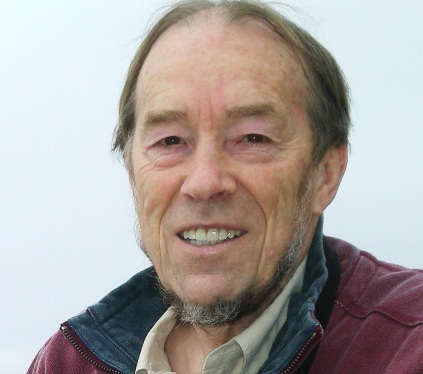
A LIVING CHRIST TO A DYING WORLD
The priest, John Drane, told his life story on the God Channel.
He did not come from a Christian home. John spent a lot of time together with his grandfather, who was also not a believer. But there was something with his grandfather. He lived a life that Christians ought to live. He carried this wonderful fruits of the Spirit, called fidelity.
Math. 5.22
It was such that the grandmother had a stroke when she was only in her 20s, and she lived until she was old; but grandfather never left her. On the contrary, he was about her and nursed her her entire life. Faithfullness is something that the Lord puts high. "My eyes will be on the faithful in the land, that they may dwell with me; " Psalms 101.6 NIV says Scripture, and
"A faithful person will be richly blessed,... " Prov. 28.20 NIV
This faithfulness, which was a way of life for grandfather was like the first seed that was put into John's heart. Here he saw the Bible preached in real life.
The next seed he got in school. He was naughty and mischievous, so he was more in the hallway than he was inside the classroom. One day they got a new teacher in Christian studies. John went up to the teacher and said, "Sir, we have no interest in the Bible!"
"Well, have you even read the Bible?" The teacher asked quietly. This question struck John, of course, you cannot have any opinion about a book before reading it. He decided then to read the Bible, so he could put the teacher a question he could not answer.
But where should he start? It was probably best to start with the Gospels. He decided to read the shortest gospel. He read all 16 chapters in 1½ hour. He was quite surprised and captivated by Jesus. He had in fact never been able to imagine that Jesus was such. He had thought that he was so proud and haughty; but now he saw that Jesus was most with publicans and sinners.
Then he read the second-shortest gospel which was Matthew's Gospel. Then he took hold of Luke, and he became more and more captivated by Jesus who went about doing good and helped everyone.
When he came to John, he asked Jesus to come into his heart, for in John 1.12 NIV says: "Yet to all who did receive him, to those who believed in his name, he gave the right to become children of God— "
He was then about 12 years. The empty space inside him was no more, for Jesus had filled it, and he is the only one who can fill it. Many people try to fill it with purchasing attacks. They buy a new car, they replace the kitchen, they go on foreign trips, but after a couple of weeks they feel just as empty inside, as before.
John Drane had put his life on the altar of God and intended to serve him fully. He traveled to Aberdeen to study theology. As a priest he preached not only in church on Sundays, no, he had the Christian life as lifestyle and thought every moment that all the king's errands are urgent.
At the end of the first broadcasting transmission, he tells how he meets people in everyday life:
In an aircraft, he once met a man. There were three seats in each row. John sat on the outside, there was no one in the middle, but on the inside seat there was this man. John sat down to read the Bible. It soon became clear to him that the man had bought two seats, so he did not have to sit too close to any stranger. But not long after having departed the man noticed that John was reading the Bible, he began to speak to him. He told about all his life that had been a big mess.
"When I left home, I slammed the door, and I do not want to return to my wife when I come back from this business trip" he said firmly.
They talked back and forth about his circumstances throughout the flight, and John showed him different issues from Scripture. Before they parted, the man said: "When I get back from this trip, I will return to my wife."
Later John heard the second part of this story. At that time the man furiously left the house, his wife went mournfully to the school. Along the way, she met a woman who saw how sorry and sad she was. The woman stopped her and said, "Don't you want to come home to me? Some women will come home to us this morning, for we are to have a prayer meeting. "When you are in distress, you gratefully welcome all the help you are offered. The woman therefore said, yes.
The women knelt and prayed for this poor woman. When the prayer hour was over, one of the women came over to the distressed woman and said, "The Lord has told me that your husband comes back." And the strange thing was that the woman knew within herself that it was true. The Lord himself had put the knowledge into her heart.
When the man somewhat uneasy returned to his home, his wife kindly walked toward him and said she knew he would come. Then she told him everything she had experienced, and then it turned out that exactly the same moment, the women knelt and prayed, the man came into conversation with the priest, John.
The word says that God has created us in Jesus to do good works.
Eph. 2.10
But we must also walk in them. However, this is where we often fail. If only the churches had been burning, it would not have been necessary with a Luther, Wesley, Moody or other "solo-men".
"For we are God’s handiwork, created in Christ Jesus to do good works, which God prepared in advance for us to do. "
Eph. 2.10 NIV
Effie Campbell
HOME
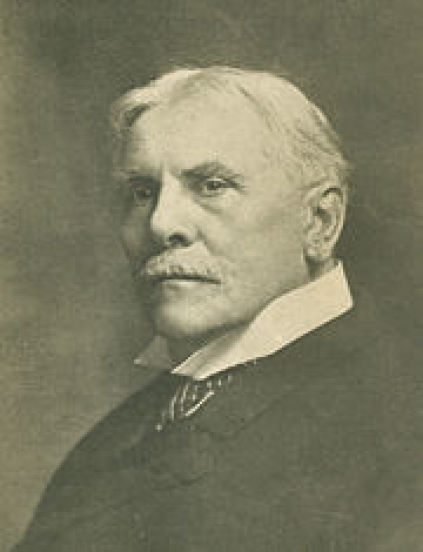
AN ALCOHOLIC BECOMES BIBLE TRANSLATOR
The famous Bible interpreter's mother, dr. C. I. Scofield died with a prayer on her lips that God would make her son a gospel servant. He grew up and was educated as a lawyer; but later he became a victim of alcoholism.
One day a friend at the same age came to him at his office to talk with him, a young man who was called Mc Pheeters,
Having talket to each other for some time Mc Pheeters got up and
was about to leave. With his hand on the handle, he suddenly turned against Scofield and said: "I have long wanted to put you a question; but have never dared do it. Nevertheless, I will do it now. "
"I never thought that you were afraid of anything," said Scofield. "What is your question?"
"I want to know why you are not a believer."
Scofield said thoughtfully: "I have a problem with alcohol. Do alcoholic have a place in heaven? "
"But you have not answered my question," said Mc Pheeters and repeated: "Why are you not a believer?"
"As you know," said Scofield, "I have always been a member of the church; but I cannot remember if I've ever had training in how to become a Christian. "
Mc Pheeters sat down, took the New Testament and read text to text from Scripture to the young lawyer, showing human beings, how they are saved.
"Do you want to receive the Lord Jesus as your personal Savior?"
He said then.
"I will consider it," came the reply.
"No, you will not, because you have done just that long enough. Now something must be done. Would you, Scofield, believe in the Lord Jesus Christ and be saved? "
This clever and logical thinking lawyer liked simple questions and clear answers, which could not be misunderstood, and after thinking about this for a while he said: "I will."
Both men fell on their knees. In the prayer Scofield said to the Lord that he now believed in Him as his personal Savior, and before he got up again, he had become a new person.
Years later dr. Scofield said when he testified about this episode: "This was a Bible-repentance. From a little worn New Testament Mc Pheeters read the great evangelical truths from Scripture for me, dealing with salvation:
"God so loved the world that he gave his one and only Son, that whoever believes in Him should not perish but have eternal life. "
John 3.16 NIV
"Very truly I tell you, the one who believes has eternal life "
John 6.47 NIV
"I give them eternal life, and they shall never perish; no one will snatch them out of my hand. "
John 10.28 NIV
““Therefore, my friends, I want you to know that through Jesus the forgiveness of sins is proclaimed to you. 39 Through him everyone who believes is set free from every sin, a justification you were not able to obtain under the law of Moses. ”
Acts 13.38 to 39 NIV
And when I as the jailer in Philippi asked, "What should I do so that I can be saved? He read again Scripture to me: "They replied, “Believe in the Lord Jesus, and you will be saved—you and your household.” "
Acts 16,31 NIV
We knelt, and I accepted Jesus as my personal Savior. The same moment all my chains loosened. My needs for a strong drink had disappeared in a split second. I will say it loud and clear that immediately Christ freed me from my previous alcoholich needs.
Effie Campbell translated.
HOME
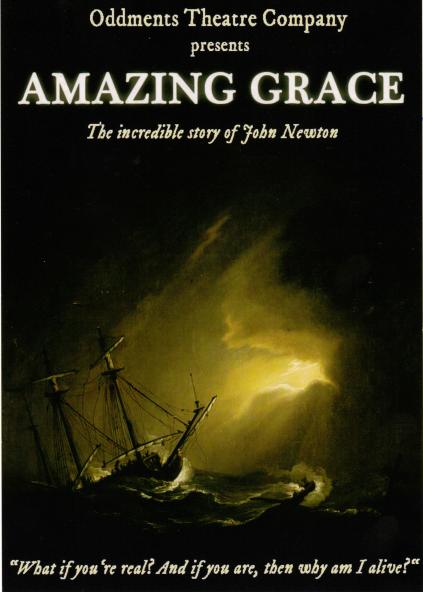
Amazing grace
Amazing grace! (how sweet the sound)
That sav’d a wretch like me!
I once was lost, but now am found,
Was blind, but now I see.
’Twas grace that taught my heart to fear,
And grace my fears reliev’d;
How precious did that grace appear,
The hour I first believ’d!
Thro’ many dangers, toils and snares,
I have already come;
’Tis grace has brought me safe thus far,
And grace will lead me home.
The Lord has promis’d good to me,
His word my hope secures;
He will my shield and portion be,
As long as life endures.
Yes, when this flesh and heart shall fail,
And mortal life shall cease;
I shall possess, within the veil,
A life of joy and peace.
The earth shall soon dissolve like snow,
The sun forbear to shine;
But God, who call’d me here below,
Will be forever mine.
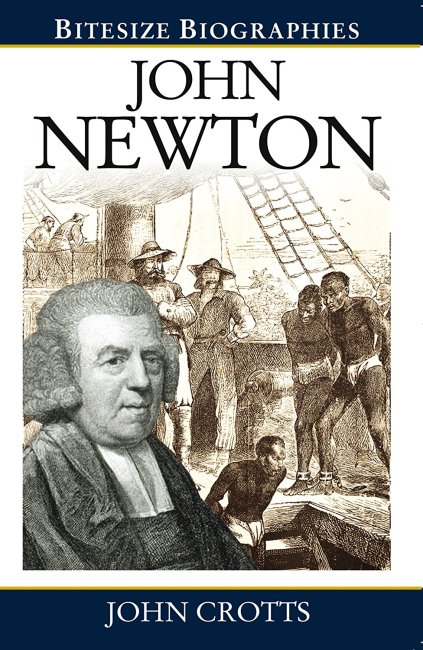
John Newton
“Amazing grace, how sweet the sound...” So begins one of the most beloved hymns of all times, a staple in the hymnals of many denominations, New Britain or “45 on the top” in Sacred Harp. The author of the words was John Newton, the self-proclaimed wretch who once was lost but then was found, saved by amazing grace.
Newton was born in London July 24, 1725, the son of a commander of a merchant ship which sailed the Mediterranean. When John was eleven, he went to sea with his father and made six voyages with him before the elder Newton retired. In 1744 John was impressed into service on a man-of-war, the H. M. S. Harwich. Finding conditions on board intolerable, he deserted but was soon recaptured and publicly flogged and demoted from midshipman to common seaman.
Finally at his own request he was exchanged into service on a slave ship, which took him to the coast of Sierra Leone. He then became the servant of a slave trader and was brutally abused. Early in 1748 he was rescued by a sea captain who had known John's father. John Newton ultimately became captain of his own ship, one which plied the slave trade.
Although he had had some early religious instruction from his mother, who had died when he was a child, he had long since given up any religious convictions. However, on a homeward voyage, while he was attempting to steer the ship through a violent storm, he experienced what he was to refer to later as his “great deliverance.” He recorded in his journal that when all seemed lost and the ship would surely sink, he exclaimed, “Lord, have mercy upon us.” Later in his cabin he reflected on what he had said and began to believe that God had addressed him through the storm and that grace had begun to work for him.
For the rest of his life he observed the anniversary of May 10, 1748 as the day of his conversion, a day of humiliation in which he subjected his will to a higher power. “Thro’ many dangers, toils and snares, I have already come; ’tis grace has bro’t me safe thus far, and grace will lead me home.” He continued in the slave trade for a time after his conversion; however, he saw to it that the slaves under his care were treated humanely.
In 1750 he married Mary Catlett, with whom he had been in love for many years. By 1755, after a serious illness, he had given up seafaring forever. During his days as a sailor he had begun to educate himself, teaching himself Latin, among other subjects. From 1755 to 1760 Newton was surveyor of tides at Liverpool, where he came to know George Whitefield, deacon in the Church of England, evangelistic preacher, and leader of the Calvinistic Methodist Church. Newton became Whitefield’s enthusiastic disciple. During this period Newton also met and came to admire John Wesley, founder of Methodism. Newton’s self-education continued, and he learned Greek and Hebrew.
He decided to become a minister and applied to the Archbishop of York for ordination. The Archbishop refused his request, but Newton persisted in his goal, and he was subsequently ordained by the Bishop of Lincoln and accepted the curacy of Olney, Buckinghamshire. Newton’s church became so crowded during services that it had to be enlarged. He preached not only in Olney but in other parts of the country. In 1767 the poet William Cowper settled at Olney, and he and Newton became friends.
Cowper helped Newton with his religious services and on his tours to other places. They held not only a regular weekly church service but also began a series of weekly prayer meetings, for which their goal was to write a new hymn for each one. They collaborated on several editions of Olney Hymns, which achieved lasting popularity. The first edition, published in 1779, contained 68 pieces by Cowper and 280 by Newton.
Among Newton’s contributions which are still loved and sung today are “How Sweet the Name of Jesus Sounds” and ”Glorious Things of Thee Are Spoken,” as well as “Amazing Grace.” Composed probably between 1760 and 1770 in Olney, ”Amazing Grace” was possibly one of the hymns written for a weekly service. Through the years other writers have composed additional verses to the hymn which came to be known as “Amazing Grace” (it was not thus entitled in Olney Hymns), and possibly verses from other Newton hymns have been added. However, these are the six stanzas that appeared, with minor spelling variations, in both the first edition in 1779 and the 1808 edition, the one nearest the date of Newton’s death. It appeared under the heading Faith’s Review and Expectation, along with a reference to First Chronicles, chapter 17, verses 16 and 17 [see the below for this Scripture – Graham Pockett].
The origin of the melody is unknown. Most hymnals attribute it to an early American folk melody. The Bill Moyers special on “Amazing Grace” speculated that it may have originated as the tune of a song the slaves sang.
Newton was not only a prolific hymn writer but also kept extensive journals and wrote many letters. Historians accredit his journals and letters for much of what is known today about the eighteenth century slave trade. In Cardiphonia, or the Utterance of the Heart, a series of devotional letters, he aligned himself with the Evangelical revival, reflecting the sentiments of his friend John Wesley and Methodism.
In 1780 Newton left Olney to become rector of St. Mary Woolnoth, St. Mary Woolchurch, in London. There he drew large congregations and influenced many, among them William Wilberforce, who would one day become a leader in the campaign for the abolition of slavery. Newton continued to preach until the last year of life, although he was blind by that time. He died in London December 21, 1807. Infidel and libertine turned minister in the Church of England, he was secure in his faith that amazing grace would lead him home.
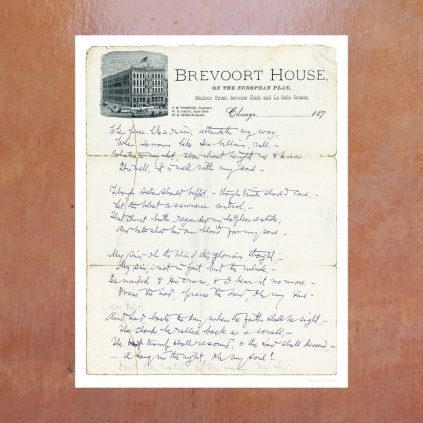
It is well with my soul
Push this link to hear the below hymn
- When peace, like a river, attendeth my way,
When sorrows like sea billows roll;
Whatever my lot, Thou hast taught me to say,
It is well, it is well with my soul.
- Refrain:
It is well with my soul,
It is well, it is well with my soul.
- Though Satan should buffet, though trials should come,
Let this blest assurance control,
That Christ hath regarded my helpless estate,
And hath shed His own blood for my soul.
- My sin—oh, the bliss of this glorious thought!—
My sin, not in part but the whole,
Is nailed to the cross, and I bear it no more,
Praise the Lord, praise the Lord, O my soul!
- For me, be it Christ, be it Christ hence to live:
If Jordan above me shall roll,
No pang shall be mine, for in death as in life
Thou wilt whisper Thy peace to my soul.
- But, Lord, ’tis for Thee, for Thy coming we wait,
The sky, not the grave, is our goal;
Oh, trump of the angel! Oh, voice of the Lord!
Blessed hope, blessed rest of my soul!
- And Lord, haste the day when the faith shall be sight,
The clouds be rolled back as a scroll;
The trump shall resound, and the Lord shall descend,
Even so, it is well with my soul.
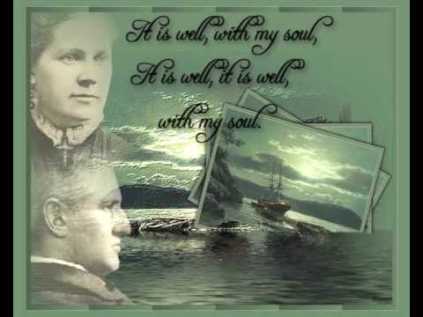
The history of the hymn "It is well with my soul"
With this hymn comes one of the most heartrending stories in the annals of hymnody.
The author, Horatio G. Spafford (1828-1888), was a Presbyterian layman from Chicago. He married Anna Larsen from Stavanger in Norway 5th September 1861. The Spaffords were well known in 60s Chicago.He had established a very successful legal practice as a young businessman and was also a devout Christian. Among his close friends were several evangelists including the famous Dwight L. Moody, also from Chicago.
Spafford’s fortune evaporated in the wake of the great Chicago Fire of 1871. Having invested heavily in real estate along Lake Michigan’s shoreline, he lost everything overnight. In a saga reminiscent of Job, his son died a short time before his financial disaster. But the worst was yet to come.
Hymnologist Kenneth Osbeck tells the story: “Desiring a rest for his wife and four daughters as well as wishing to join and assist Moody and [his musician Ira] Sankey in one of their campaigns in Great Britain, Spafford planned a European trip for his family in 1873. In November of that year, due to unexpected last-minute business developments, he had to remain in Chicago, but sent his wife and four daughters on ahead as scheduled on the S.S. Ville du Havre. He expected to follow in a few days.
“On November 22 the ship was struck by the Lochearn, an English vessel, and sank in twelve minutes. Several days later the survivors were finally landed at Cardiff, Wales, and Mrs. Spafford cabled her husband, ‘Saved alone.’”
Horatio Spafford immediately left for Europe to join his wife in her great grief.
The hymn "It is well with my soul" is said to have been penned as he approached the area of the ocean thought to be where the ship carrying his daughters had sunk.
Another daughter, Bertha, was born in 1878 as well as a son, Horatio, in 1880, though he later died of scarlet fever. After the birth of daughter Grace in 1881, Spafford and his wife moved to Jerusalem out of a deep interest in the Holy Land. There they established the American Colony, a Christian utopian society engaged in philanthropic activities among Jews, Muslims and Christians.
Four days shy of his 60th birthday, Horatio Spafford died on October 16, 1888, of malaria and was buried in Mount Zion Cemetery, Jerusalem.
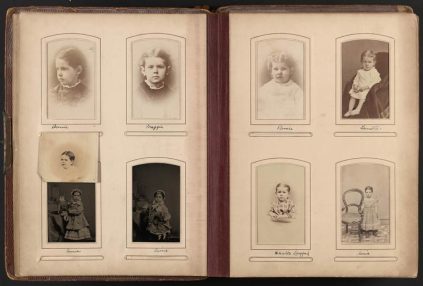
The 4 Spafford daughters
The Spafford daughters, Annie, Maggie, Bessie, and Tanetta (top row, left to right) drowned when the S.S. Ville du Havre sank after it was hit by a British vessel en route to Europe in November 1873. A fellow survivor of the collision, Pastor Weiss, recalled Anna saying, “God gave me four daughters. Now they have been taken from me. Someday I will understand why.” The Spafford's son Horatio (bottom row second from right), born three years after the tragedy, died in 1880 at age four.
HOME
Type your text here
Type your text here
Type your text here
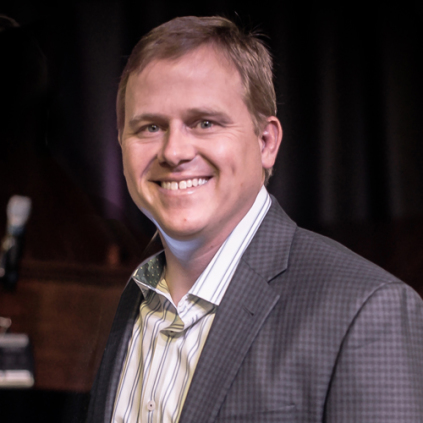
A HUGE EXPERIENCE
The phone rang, and I got a message from a good friend who was sick. His wife said that her husband really wanted me to come for a visit because he was so sick. The thoughts surged in my mind, 53 years old and cancerous. I thought, What do I say to a terminally ill man?
We left. My wife drove, because I myself am ill. He lay still in his bed, and immediately when we stepped inside, we saw that he was dying of cancer. As we sit down with him, we notice that he is trying to say something.
"I have had a wonderful experience," he began.
"Third day of Christmas, I lost consciousness. I saw Jesus come and take me. He came in a big column of fire, the clothes were completely burned away from me, and I was dressed in a golden robe and got new shoes on my feet.
When I had arrived in heaven, my father came to me and welcomed me, and I recognized many people who had died in the faith of Jesus Christ. It was wonderful in heaven, and everyone was happy, but I also saw people being thrown into the lake of fire. A large crowd gathered around Jesus, and I felt so at ease that it cannot be expressed in words.
After having stayed for a moment in heaven, Jesus came to meet me and said, "You must return back to the earth, for there is something you can do for me. Well, you have a great work to do. "I was sad, because it was so great being in heaven; but suddenly I found myself back here in my bed. And now I'm only waiting for Jesus to come to take me home to heaven. He has taken all fear away from me. Now there's only one thing I want: Tell to all people I come into contact with that Jesus is a reality!
It is therefore essential to say yes to his invitation now.
Now I lie here looking very much forward to coming home in heaven. "
While I sit, the perspective of this hits me: You have to write this down. With your typewriter, you can reach millions of people. Although I have - recently - twice been transferred unconscious to hospital. I have no doubt that I WAS TO RETURN and that Ove WAS TO EXPERIENCE heaven for a moment, so that we were to come with a proclamation to people: "Jesus Christ is a wondrous reality."*
Now, you who read this, is handed the torch. Do you want to pass it on and shout: "Jesus is a living reality?"
Hurry to make up with God, so you who read this can be ready.
Adrian Johansen
* This report is similar to the one we read about in the book, ”Heaven is for real” This is a book about a little boy's amazing account of his brief visit to heaven and his experiences there.
HOME
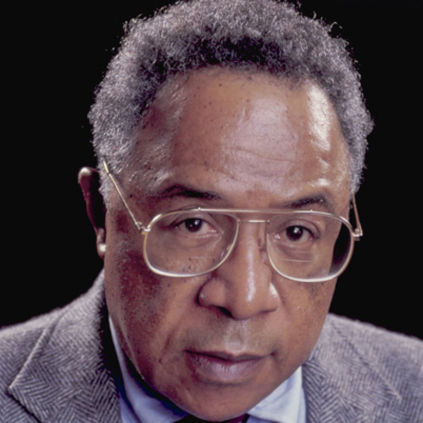
Alex Haley
THUS FAR THE LORD HAS HELPED US
”“Thus far the Lord has helped us.””
1. Sam. 7.12 NIV
The author, Alex Haley had a particular picture hanging on the wall in his office. In the picture there was a turtle sitting on top of a fence post. When asked why he had this photo in his office, he replied: "Every time I write something important or read what I have written and like what I've done, being proud of myself then I look at the turtle on top of that fence post and think that it has not come up there on that fence post on its own. It must have received help.
This is the foundation under any gratitude - that God has helped us to where we now are in life, and that he has given us all the blessing we have.
Alex Haley, has the picture of the turtle on a fence post to remind himself of being grateful. Samuel in the Bible's Old Testament did it in a different way. ”Then Samuel took a stone and set it up... He named it Ebenezer, saying, “Thus far the Lord has helped us.” ”
1. Sam. 7,12 NIV
e.c. Translated
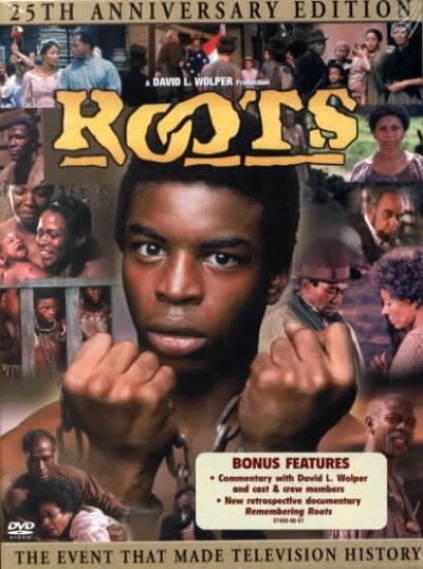
Roots
Alex Haley, 11. August 1921 – 10. February 1992, was an American author. Alex Haley wrote e.g. The Roots and the autobiographie for Malcolm X. Roots was filmatized in the 70's

QUOTE
QUOTE:
"Anytime you see a turtle up on top of a fence post, you know he had some help."
Alex Haley
HOME
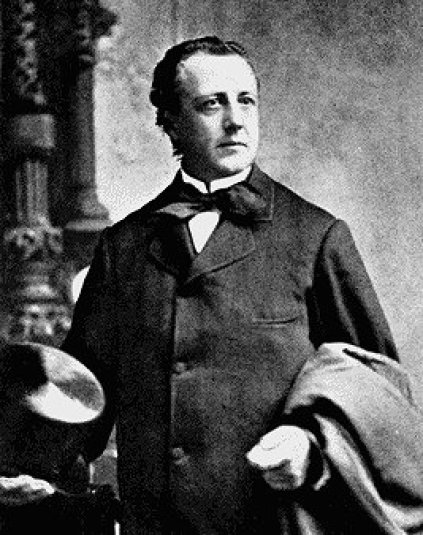
Joseph Scriven. "What a friend we have in Jesus"
Joseph Scriven, 1820-1886.
Account of J. Scriven: Video
Mr. Sankey, in his Life and Sacred Songs, 1906, page 279, says that Scriven was born in Dublin in 1820, was a graduate of Trinity College, Dublin, and went to Canada when he was 25, and died there at Port Hope on Lake Ontario in 1886. His hymn "What a Friend we have in Jesus" (Jesus our Friend) was, according to Mr Sankey, discovered to be his in the following manner: 'A neighbour, sitting up with him in his illness, happened upon a manuscript of 'What a Friend we have in Jesus'. Reading it with great delight, and questioning Mr. Scriven about it, he said he had composed it for his mother, to comfort her in a time of special sorrow, not intending anyone else should see it'. We find the hymn in H.L. Hastings' Social Hymns, Original and Selected, 1865, no. 242, and his Songs of Pilgrimage, 1886, no 1291, where it is attributed to "Joseph Scriven, cir. 1855". It is found in many modern collections.
Scriven's hymn in 'Spiritual Songs' is No. 306. "What a Friend we have in Jesus". It is the first time it has been included in the Little Flock Hymn Book.
An account of the hymn in 'Sing Them Again' by M. Guthrie Clark, M.A. published March 1955 by Henry E Walter, Ltd, Central Buildings, Bath Place, Worthing, and London, W.C.1:-
The origin of our hymns is a very interesting line of enquiry full of unexpected discoveries and joys. Hymns have been written for all sorts of purposes. Some, like the hymns of Frances Alexander, were written especially for children to help them learn the Lord's Prayer, the Creed and the Ten Commandments. Some, like George Mattheson's masterpiece, were written to express the author's convictions and longings in connection with them. Some, like Baring Gould's "Onward Christian Soldiers" were written for a specific act of worship. Some, like Toplady's hymn, arose out of some peculiar circumstance of life. Some arose spontaneously out of a devotional hour with the Saviour and were written down almost at His dictation. The hymn now before us falls into the last category. It came to Joseph Scriven in his last illness as he thought of his mother whom he had to leave behind. We may say it arose from a Christian's desire to explain his own secret with a view to helping someone else who was very dear to him. Not long before Scriven was called Home, he was visited by a neighbour who saw it written on a sheet of paper which lay on a table at his bedside. "Are you the author of this lovely poem?" asked the visitor. "The Lord and I did it together" was the reply. What a lovely explanation of the origin of this moving hymn, and maybe of most hymns, "The Lord and I did it together". Do not these words let us into a great secret of christian living? What needless pain we bear because we try to do it on our own, and things go wrong, and we give way to self pity. Do you remember what was said of Joseph in prison? Whatsoever was done there, he was the doer of it! Joseph is a type of the Lord Jesus Christ.
You may be surprised to know that this hymn arose out of a tragedy, though there was a long space of time between the actual tragedy and the completion of the hymn. There is not a great deal of information regarding Joseph Scriven, but such as we have I must give you, because I feel sure that this story will touch some readers very deeply, and may lead them in the path in which Joseph Scriven was led. It is a hymn for sufferers of all kinds, but specially for those who have had to face mysterious happenings, which have been permitted in their lives, and that are hard to interpret.
Joseph Scriven was born in Ireland in 1820 and lived there for the first 25 years of his life. Sometime in 1845 he emigrated to Canada, as many another Irishman has done, seeking his fate in the New World. He died in 1886 at the age of 66, after a varied life filled with difficulties such as many a settler has known. He was brought to Christ as a result of losing his bride-to-be on the eve of their marriage. She was accidentally drowned a few hours before they were to be joined in holy matrimony. What an indescribable grief! How easily it might have led him in the opposite direction to unbelief and bitterness and hardness of heart. I always think of this when I come to the last lines of verse three: "In His arms He'll take and shield thee; Thou wilt find a solace there".
It appears that the hymn was written a long time before it was seen by anyone save himself and his mother. It was written to comfort his mother in a time of great sorrow, and we can imagine what it meant to her after her son had died. How many hearts it has comforted since, no one knows but the Lord.
The subject of the hymn is the friendship of Christ, which is a very precious one, especially to the lonely and those in need. I remember an open-air service in South London where this hymn was sung at the close. On the other side of the main road stood a young man who had just come to London to work, and he listened wistfully to all that was said and sung. The meeting over, he was approached by a worker, who asked him some questions in the strain, "Did you follow the address?" etc. But it seemed to mean nothing to the stranger until at last the young evangelist said, "Do you want a Friend?" "Do I want a friend? I should think I do. I have just came up to London and don't know a soul". And a friendship began that night which will never end. Turning to the hymn itself we note that there is a haunting refrain eight times repeated, "Take it to the Lord in prayer". "Everything to God in prayer" comes first; and then detail after detail for ever afterwards, "Take it to the Lord in prayer" "Take it to the Lord in prayer". We can summarize the three verses as follows: 'our sins', 'our sorrows', 'our sighs'. Are we facing 'dispeace', 'discomfort', 'distress'? The same remedy suits every malady. The wording takes the form of question and answer, and everyone who searches his heart with these interrogations will soon find the solution. The note of intimate fellowship is seen throughout, fellowship between Christ and His friends. The Saviour carries our sins and knows our weaknesses and shields our hearts. Simplicity rather than profundity characterises this beautiful hymn which will ever be a favourite with children and all in need. Is there anything in the hymn which a child cannot understand? No words need explanation here! How easily this hymn might have been lost in oblivion if that single piece of paper had been inadvertently destroyed. Isaiah 48:18. Proverbs 18:24. Matthew 11:28. Extract from "The Days of my Pilgrimage", by A.F. Willis. "Our education was not neglected and for about two years our teacher was one whose name has come before the attention of the public in late years — -Joseph Scriven, author of the well known hymn, "What a Friend we have in Jesus". He taught us in our home, two or three other children coming in to share his instruction. A graduate of Trinity College, Dublin, he was nevertheless a humble christian man, his one desire to spread the Gospel of our Lord Jesus Christ, and few then living in Port Hope and its vicinity did not have the question of their soul's salvation put to them by him. His home while he was teaching us was with an old woman, Mrs Gibson by name, who lived nearby and eked out a scanty living by keeping cows. He often delivered the milk for her when she was crippled with rheumatism. Hymns by Joseph Scriven
Push this link to listen
Listen to "What a Friend We Have in Jesus"
by Joseph Scriven, 1820-1886
1. What a Friend we have in Jesus,
All our sins and griefs to bear!
What a privilege to carry
Ev'rything to God in prayer!
Oh, what peace we often forfeit,
Oh, what needless pain we bear,
All because we do not carry
Ev'rything to God in prayer!
2. Have we trials and temptations?
Is there trouble anywhere?
We should never be discouraged,
Take it to the Lord in prayer.
Can we find a Friend so faithful
Who will all our sorrows share?
Jesus knows our ev'ry weakness--
Take it to the Lord in prayer.
3. Are we weak and heavy laden,
Cumbered with a load of care?
Precious Savior, still our Refuge--
Take it to the Lord in prayer.
Do thy friends despise, forsake thee?
Take it to the Lord in prayer;
In His arms He'll take and shield thee,
Thou wilt find a solace there.
The Lutheran Hymnal
Text: Matthew 21:22
Author: Joseph Scriven, 1865
HOME
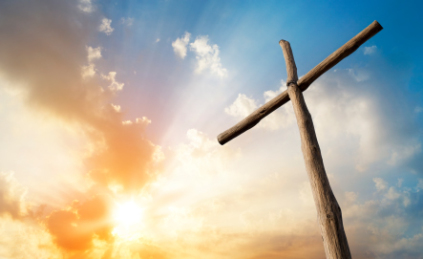
I HAVE DECIDED TO FOLLOW JESUS
Push the following link to hear: "I Have Decided to Follow Jesus"
VIDEO
I Have Decided to Follow Jesus is a Christian hymn that originated in Assam, India.
The lyrics are based on the last words of an Assamese man, who along with his family decided to follow Jesus Christ in the middle of the 19th century through the efforts of a Welsh missionary. Called to renounce his faith by the village chief, the convert declared, "I have decided to follow Jesus." In response to threats to his family, he continued, "Though no one joins me, still I will follow." His wife was killed, and he was executed while singing, "The cross before me, the world behind me." This display of faith is reported to have led to the conversion of the chief and others in the village.
The formation of these words into a hymn is attributed to the Indian missionary Sadhu Sundar Singh. The melody is also Indian, and entitled "Assam" after the region where the text originated. The fierce opposition is possible as various tribes in that area were formerly renowned for head-hunting.
An American hymn editor, William Jensen Reynolds, composed an arrangement which was included in the 1959 Assembly Songbook. His version became a regular feature of Billy Graham's evangelistic meetings in America and elsewhere, spreading its popularity.
Due to the lyrics' explicit focus on the believer's own commitment, the hymn is cited as a prime example of decision theology, emphasising the human response rather than the action of God in giving faith. This has led to its exclusion from some hymnals. A Lutheran writer noted, "It definitely has a different meaning when we sing it than it did for the person who composed it."
1 I have decided to follow Jesus;
I have decided to follow Jesus;
I have decided to follow Jesus;
no turning back, no turning back.
2 Though none go with me, I still will follow;
though none go with me, I still will follow;
though none go with me, I still will follow;
no turning back, no turning back.
3 My cross I'll carry, till I see Jesus;
my cross I'll carry, till I see Jesus;
my cross I'll carry, till I see Jesus;
no turning back, no turning back.
4 The world behind me, the cross before me;
the world behind me, the cross before me;
the world behind me, the cross before me;
no turning back, no turning back.
HOME
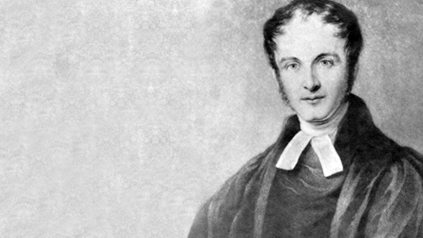
"Abide with me" Henry Francis Lyte
Henry Francis Lyte 1793 – 1847
Push HERE to hear the hymn
Push HERE to get the story in words and images
Henry Francis Lyte was desperately ill with tuberculosis. He did not expect to live. He was so sick, in fact, that he had prepared a farewell sermon to preach later on this morning, September 4, 1847. Meanwhile he drew a paper toward him on which he had begun to write some verses:
Abide with me; fast falls the eventide;
The darkness deepens; Lord with me abide.
When other helpers fail and comforts flee,
Help of the helpless, O abide with me.
His mind passed back over his life as he touched up the stanzas; and he wrote, "Thou on my head in early youth did smile..." Henry's loving mother had taught him Bible stories and God's love. However, his father abandoned the family. Henry's mother soon died. Nine-year-old Henry was left alone in the world. A kindly Irish minister named Dr. Robert Burrows, with five children of his own, took Henry in and put him through school. (Later Henry paid the Rev. Burrow back all that he owed him.)
Henry planned to study medicine but weak health forced him to turn to the ministry instead. He won prizes at Trinity College, Dublin for poems--three years in a row--and a scholarship. In 1814 he graduated, and was ordained as a minister of the Church of England the next year.
The young clergyman tended Abraham Swanne, a dying pastor. Swanne's deep faith and fearlessness in the face of death made a strong impression on Henry. He helped Swanne's wife and family arrange their affairs while carrying on his own pastoral duties. As a consequence of his overwork, his health broke down. He had to go to warmer France to regain his health.
Henry pastored English churches the rest of his life. Twenty-three of those years were at Brixham, a Devonshire fishing town. His people loved him, for he took a strong interest in their work and visited the boats whenever they returned from sea. Anna Maxwell, his wife, visited the sick and lent a hand in the town's projects. By careful management of household expenses, she saved enough money to send Henry to warmer France and Italy by himself every winter.
Fifty-four-year-old Henry was used to living with one foot in the grave when he preached his final sermon. He reminded his hearers that we must all die and that those who have embraced the death of Christ in their lives are best prepared to face the body's death. "I stand here among you today, as alive from the dead, if I may hope to impress it upon you, and induce you to prepare for that solemn hour which must come to all, by a timely acquaintance with the death of Christ."
He planned to go to Italy where he hoped sunshine and warmth would restore him. He made it only as far as Nice, France. There he became so ill he had to rest. Again God stayed with him in the form of an English clergyman who nursed him. Ten weeks after preaching his farewell sermon, Henry died.
"Abide with Me! Fast Falls the Eventide"
by Henry F. Lyte, 1793-1847
1. Abide with me! Fast falls the eventide;
The darkness deepens; Lord with me abide.
When other helpers fail and comforts flee,
Help of the helpless, oh, abide with me!
2. Swift to its close ebbs out life's little day;
Earth's joys grow dim, its glories pass away;
Change and decay in all around I see.
O Thou, who changest not, abide with me!
3. Not a brief glance I beg, a passing word,
But as Thou dwell'st with Thy disciples, Lord,
Familiar, condescending, patient, free.
Come not to sojourn, but abide with me.
4. Come not in terror, as the King of kings,
But kind and good, with healing in Thy wings;
Tears for all woes, a heart for every plea.
Come, Friend of sinners, thus abide with me.
5. Thou on my head in every youth didst smile,
And though rebellious and perverse meanwhile,
Thou hast not left me, oft as I left Thee.
On to the close, O Lord, abide with me.
6. I need Thy presence every passing hour;
What but Thy grace can foil the Tempter's power?
Who like Thyself my guide and stay can be?
Through cloud and sunshine, oh, abide with me!
7. I fear no foe, with Thee at hand to bless;
Ills have no weight and tears no bitterness.
Where is death's sting? where, grave, thy victory?
I triumph still if Thou abide with me.
8. Hold Thou Thy cross before my closing eyes,
Shine through the gloom, and point me to the skies.
Heaven's morning breaks, and earth's vain shadows flee;
In life, in death, O Lord, abide with me!
Hymn #552
The Lutheran Hymnal
Tekstur: Lukas 24,29
Høvundur: Henry F. Lyte, 1847
Lag: "Eventide"
HOME
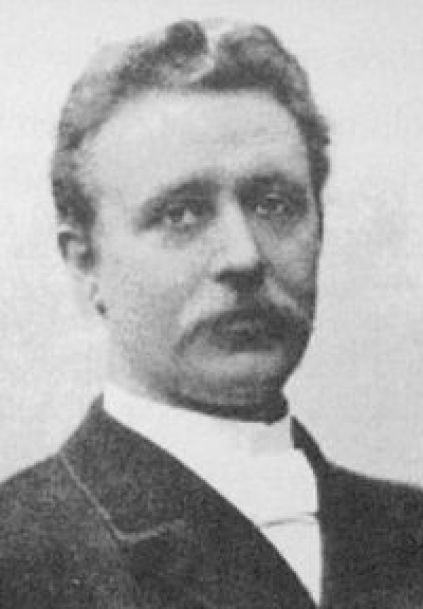
Push here to hear the story about How Great Thou Art
Push this link to hearing the hymn
The history of the hymn How Great Thou Art begins with Mr. Carl Gustaf Boberg (1859-1940). He was a Swedish pastor, editor, and member of the Swedish parliament. Mr. Boberg was enjoying a nice walk when a thunderstorm suddenly appeared out of no where. A severe wind began to blow. After the storm was over, Mr. Boberg looked out over the clear bay. He then heard a church bell in the distance. And the words to How Great Thou Art begin to form in his heart -- O Lord, my God, When I in awesome wonder, consider all the worlds Thy hands hath made. . . Can you imagine what Boberg felt as he formed these words? There was such calmness after the fierce storm he could only utter those words of peace.
This poem, titled O Store Gud (O Great God) was published in 1891 in Witness of the Truth, the weekly newspaper that Boberg edited. It was later translated in German. In 1927, it was published in a Russian version of the German text.
How Great Thou Art was translated by Stuart K. Hine, the English missionary to Ukraine. He found some version of the Russian text and sang it at an evangelistic meeting with his wife. He then translated the first three stanzas into English, which was sung at an evangelistic meeting in England during World War One. He published the first three verses (in both English and Russian) in 1949 in Grace and Peace, a Russian evangelistic paper which Hine edited. He later wrote the fourth verse as a triumphant message of life eternal.
Of the hymn’s importance he said: “When we reach that heavenly home, we will fully understand the greatness of God, and will bow in humble adoration, saying to Him, O Lord my God, how great thou art.” May we all live in such a way that we will be ready when Jesus Christ appears to receive the saints. Our heavenly home awaits us, all of those who have received Christ in obedience.
Dr. J. Edwin Orr of Fuller Theological Seminary, is said to have brought the hymn to America. After hearing it sung in India, he introduced it to various Christian groups in America. In 1954, Dr. Cyrus Nelson of Gospel Light Publications copyrighted and published the song.
How Great Thou Art was sung by George Beverly Shea at the London Crusade of the Billy Graham evangelistic team in 1954. He later sang this song over 100 times during a revival in New York at a Billy Graham Crusade. This caused the hymn to receive new attention in Sweden and America and be published in several songbooks.
Today millions across the world continue to sing this beautiful song. Giving God all praise, glory, and honor for who He is -- the Creator of this universe.
O Lord my God, when I in awesome wonder
Consider all the worlds thy hands hath made
I see the stars, I hear the rolling thunder
Thy power throughout the universe displayed
Then sings my soul, my Savior God, to Thee
How great Thou art, how great Thou art
Then sings my soul, my Savior God, to Thee
How great Thou art, how great Thou art!
Then sings my soul, my Savior God, to Thee
How great Thou art, how great Thou art
Then sings my soul, my Savior God, to Thee
How great Thou art, how great Thou art!
HOME
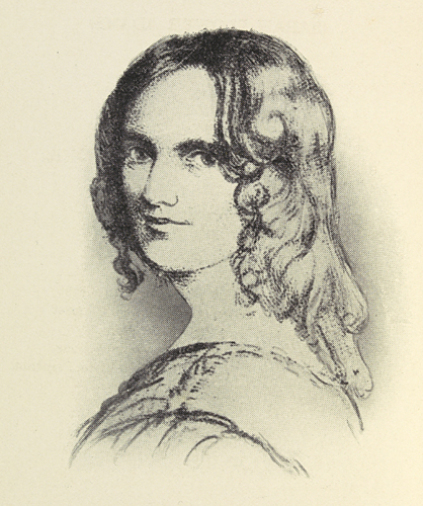
Sarah Flower Adams - Nearer my God to thee
PRESS LINK TO SEE
PRESS LINK TO HEAR PSALM
Sarah Flower Adams was born at Harlow, Essex, England on February 22, 1805. She was the younger daughter of Mr. Benjamin Flower, editor and proprietor of the Cambridge Intelligencer and a political activist.
Sarah wanted to be an actress, and in 1837 played the part of Lady MacBeth in a London production to rave reviews, but ill health cut her acting career short, so she turned to writing. As a member of the congregation of the Reverend William Johnson Fox, a Unitarian minister in London, she contributed thirteen hymns to “Hymns of Anthems” published by C. Fox London in 1841. Of all her hymns, the most widely known are “Nearer, My God, to Thee” and “He Sendeth Sun, He Sendeth Shower.” “Nearer, My God, to Thee” was written by request to accompany a sermon by Reverend Fox on the account of Jacob’s dream in Genesis chapter 28, and was sung to a tune composed by Sarah's sister, Eliza, who was a composer and musician. But the hymn did not gain wide appeal until paired with the Lowell Mason tune with which it is commonly sung today.
The hymn came from the pen of Sarah Flower Adams, a woman well-known as an actor and writer. Sarah Flower was born into a very radical English home in 1805. Her father was a writer and editor of radical journals and once went to prison for his criticism of a bishop. Independence of mind was obviously passed on to his daughter who married William Adams on the understanding that she would have to do “no housekeeping.” William Adams was an engineer and radical writer and he and Sarah were married in 1834. They lived in Essex until Sarah’s early death from tuberculosis in 1848, she was 43.
Sarah Adams’ best-known literary work was a drama celebrating Christian martyrs; she had an eye for the dramatic, for words that reached into the depths of the emotions, and she demonstrates that skill in the writing of “Nearer, my God, to thee.” It is a hymn that is about the depths of human experience.
“E’en though it be a cross that raiseth me”, captures a sense of desolation, of being at the bottom, of being alone and in despair. Sarah Adams was to know such experiences, nursing her sister through TB and then dying from it herself twenty months later. It takes faith to believe that in such experiences we are drawn closer to God.
Sarah Adams uses the story of Jacob being alone on a journey as her inspiration. In Genesis Chapter 28, he is far from home and darkness has fallen and he finds a place to sleep among the rocks, resting his head on a stone. It’s as he sleeps there that he has a vision of a stairway to heaven and angels going up and down the stairway.
When Jacob wakes up in the morning, he says, “How awesome is this place!” and he sets up the stone on which he has slept and calls it “Bethel”, the “House of God”.
Jacob builds Bethel after having an inspiring vision. Sarah Adams believed we were to go even further, it is not only in the inspiring moments that we are to find God, it is also in the grief-filled moments, “out of my stony griefs
Bethel I’ll raise; so by my woes to be nearer, my God to thee”.
In some hymnbooks, the hymn used to finish there: accepting grief as it was and seeking God in our sadness, but if we are Christians, we look beyond the sadness. “Sun, moon, and stars forgot, upward I fly”, says Sarah Adams; in the end life sometimes only makes sense in God’s presence.
Bethany, the tune which the Band on theTitanic probably didn’t play, but the tune to which we sing “Nearer, my God, to thee”, was written by Lowell Mason, an American who came from a much humbler background than Sarah Adams. He worked his way up, starting out in a dry goods sore, and then working in a bank, during which time he had a keen interest in amateur music. His musical studies led him to appointment as a church organist and director of music and he went on to become an important figure in 19th Century American music. He wrote some 1600 hymns, using as his inspiration European classical music. Born thirteen years before Sarah Adams, Mason lived twenty-four years after her death, a life which ended peacefully on his estate at Orange, New Jersey in 1872.
Adams’ words and Mason’s music combine to produce a hymn which ranks among many people’s favourites. Sometimes, when all around is blackness, our only prayer can be “Nearer, my God, to thee”. It is the simplest of prayers, but the most profound of prayers, and, as countless people have found, it is a prayer that gets us through.
HOME
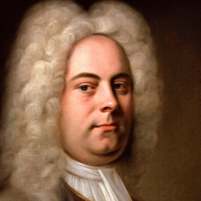
GEORG FRIEDRICH HANDEL AND HIS MESSIAH
Georg Friedrich Händel, 1685-1759.
BBC documentary about Georg Friedrich Handel
PRES HERE To hear "I know that my redeemer liveth" from Messiah
PRES HERE To hear "Hallelujah" from Messiah
PRESS HERE To hear "For unto us a child i born" from Messiah
PRES HERE To hear "The promise of eternal life" from Messiah
In his musical career as a composer, Georg Friedrich Händel wrote 42 operas, 29 oratorios and 120 cantatas. Handel ranks among the greatest composers of all time. Despite the fact that Handel was severely affected and written off by many in the 1730s and 40s due to debt, cerebral hemorrhage, paralysis, depression and declining popularity, he made a unique comeback through one of history's most iconic musical masterpieces, the Messiah, which he began composing August 22, 1741 after a deeply personal experience, an experience that changed his life and musical direction.
"I think I saw the whole heaven before me and the Almighty God himself!"
That's how 56-year-old Georg Friedrich Händel exclaims as tears stream down his pale cheeks. He says this to the servant who brings food to him.
Handel is pale, but there is a special glow in his eyes. He has experienced something very special. Probably a sight, a revelation of the heavenly world.
He hardly eats, and he has not been outside a door for three weeks, writing notes, singing and beating the baton in the room of the small house on London's Brook Street.
Unstoppable
Three weeks ago, on August 21, 1741, he opened a package containing a letter from his friend, the poet Charles Jennens, who, among other things, had written the text for his oratorios Saul and Israel in Egypt. Jennens had composed a manuscript for a work he called "The Messiah."
When Handel reluctantly reads the text, something happens in him!
In the following three weeks he is almost unapproachable to others, he hardly eats and sleeps, but writes in a kind of creative intoxication.
Many believe that Handel wrote the music based on a supernatural revelation from the heavenly world - as his words to the servant suggest.
In any case, he is deeply influenced by the lyrics, and since then people see the otherwise not very religiously inclined Handel on his knees in the church "long sunk in prayer".
After only 24 days, Handel created one of the greatest works in the history of music: the Oratorio Messiah. It is 260 pages of scores, almost three hours of music with immortal choruses and arias such as the famous "Hallelujah" choir, "For unto us a child is born", and "I know that my redeemer liveth ”(I know my Redeemer lives).
Bach and Handel
Georg Friedrich Händel, like the other great composer of the late Baroque, Johann Sebastian Bach, came from Germany and were even born the same year, in 1685. But their lives took different directions and they never met.
Bach was born into a family of organists and composers who almost naturally led him into music. On the other hand, Handel's father, Georg, who was both a surgeon and a barber, wanted his son to focus on something sensible that he could make a living from. The father wanted the son to become a lawyer and in fact Handel studied law until 1703, although the father died when Handel was 11 years old. Already as a 12-year-old, Handel wrote his first musical composition.
But already as a boy Georg Friedrich showed such remarkable musical abilities that his father's employer, the Duke of Saxony-Weissenfels, persuaded the father to let his son receive music lessons, which the father agreed to when Handel was 9 years old.
Where Bach apparently did best with relatively long-term engagements as an organist and musical director, Handel was restless and sought change and new impulses.
Handel became fascinated by the Italian opera style. He quickly gained fame and star status both in his native Germany and in Italy, and in England he gained friendly relations with both the nobility and the royal family.
The first stroke
But on April 13, 1737, Handel gets an apoplectic stroke and collapses in his study room in his home in Westminster, London. The waiter calls for an assistant and a doctor sees what condition the stout man is in.
They are convinced that it is all over. If he survives, he's never going to be who he was again, and he's definitely not going to write any more music. A stroke has paralyzed him on the right side and it appears he has also suffered brain damage. It takes a miracle to make him well, the doctor says.
When he recovers, the doctor and friends recommend Händel to go on a spa stay in Aachen in his native Germany.
Here he defies the doctors' advice not to stay in the hot water for more than a maximum of three hours each day because his heart would not be able to cope more. Handel stays in the water for nine hours a day! And slowly he recovers from the paralysis and regains his strength.
Handel experienced it as getting life back.
But his trials are not over. In the following years, he struggled with money shortages and depression. He wonders if there is a meaning to the fact that he did not die when he had his stroke.
Reached the bottom
Handel's opera house, which had gained such great popularity a couple of years earlier, went out of fashion in 1741 and bankruptcy is now threatening. The Italian opera style with its languorous melodies, which Handel masters to perfection, no longer captures London audiences.
Despite advice from friends and colleagues, Handel continues to write and set up new operas in this style out of necessity - in the hope that the wind will turn again.
But it does not, and it is a tired and weary man who receives the unconventional manuscript for an oratorio about the life of Jesus in August 1741 from his friend Jennens.
A different oratorio
Unlike a regular oratorical libretto, the Messiah does not even have an action. An oratorio is usually a kind of church musical counterpart to the opera. We follow a biblical act in which the dramatic course is depicted by the soloists singing the roles of the characters, as happens in Bach's great passion play.
The Messiah is different. The texts are mainly biblical quotations and adaptations of these. Relatively few of the texts are from the four Gospels, for the main emphasis are instead texts from the Old Testament from the books of the prophets, especially Isaiah.
Many passages from the book of Psalms are used, and the texts from the New Testament come mostly from the Revelation of John, the Corinthians, as well as some texts are from Luke, Matthew, John, and the book of Hebrews.
It is the way in which the texts are composed that creates the momentum of the work.
The Messiah is divided into three. The first part is about the Savior who is to come. The second part dwells on the story of suffering and culminates in the wonderful Hallelujah with text from the Revelation of John.
Part 3 is about the risen and glorified Christ and the eternal life. It begins with the work's most beautiful melody, the soprano aria "I know that my redeemer liveth" with lyrics from the book of Job: "Yet I know that my redeemer liveth, at last he shall stand upon the earth." (Job 19,25)
These texts moved Handel in a very special way. On the last page of the work, Handel writes 3 letters in ink, SDG - Soli Deo Gloria - "To God alone be the glory!" This became a turning point in his career and in his life.
Until then, the physically large man was known for behaving with a strong temper with which he easily offended people.
Close to the bottom
In the summer of 1741, when Handel composes music for the Messiah, his popularity in London is at an all-time low. However, he has received an invitation to come to the less fashionable Dublin to lead a concert performance of some of his works.
The original setting up of the Messiah therefore does not take place in London, but in the capital of Ireland on 13 April 1742.
The performance is a charity concert for the benefit of debt victims. And its success with 700 listeners bringing in £ 400 means that 142 men can be freed from debt prison.
Inspired by the glorious reception of the work in Ireland, Handel puts on a performance of the Messiah in London's Covent Garden the following year.
However, it was a disappointment for the composer. The hall is not full and the audience shows only moderate enthusiasm. The performance itself is controversial. The Messiah is a spiritually inspired work. And many believe that it is not appropriate to perform the work in a secular theater hall.
After a while, the Messiah is re-enacted as a charity concert for the benefit of a children's hospital. The Foundling Hospital in Lambs-Conduit-Fields.
The king rises
Among the 1,500 spectators is the king, George II. When the Hallelujah choir begins and the words "for the Lord God Omnipotent reigneth" (the Lord our God, the Almighty, has taken power), the king rises spontaneously and is immediately followed by the deeply moved assembly.
Since then, it has been customary for the audience to rise when the first Ha-a-allelujah in the famous choir sounds.
After this, Handel himself leads a large number of popular performances of the Messiah, many of them in favor of charitable causes.
Handel now turns entirely to the oratorical form. From his hand follow biblical masterpieces such as Samson, Joseph and his brothers, Judas Maccabeus and Joshua.
Händel wished to die on Good Friday
Handel faced several adversities in life. He had several strokes and his vision got worse and worse. And he had long since become blind when, on Friday, April 6, 1759, he participated in a final performance of the Messiah, the work he himself most appreciated.
"I would like to die on Good Friday in the hope of being united with the dear God, my gracious Lord and Savior, on His resurrection day," he said. He died on Easter Saturday morning, April 14, 1759.
He gets a state funeral in Westminster Abbey, and about 3,000 follow him to the grave.
Despite his German origins, Handel is considered England's national composer, and even after his death, his compositions become increasingly popular, especially the Messiah.
Other composers are also inspired. The young Mozart was deeply moved when he heard the oratorio. He even orchestrated the Messiah to suit the classical orchestral style of Vienna with flutes, clarinets and trombones.
The frequent performances of the oratorio almost always gather full houses. The same goes for the popularized versions like the rocking “Young Messiah” (not to be confused with the movie of the same name) and the soul-inspired “A Soulful Celebration” with Quincy Jones and a host of soul and gospel stars in the solo roles.
The many CD recordings and TV and concert versions - and new performances for Christmas - continue to move people.
In his will, Georg Friedrich Händel left funds received from the Messiah to the Foundling Hospital in London.
The article partly builds on Martin Alfsen's book “Jesus in music” (see Hosianna.dk), Stefan Zweig's Stjernestunder, Udfordringen and other sources. The text is edited by Henri Nissen.
HOME
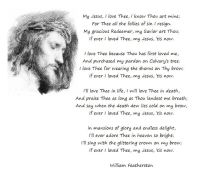
William Ralph Featherston(1848 - 1875)
Pres link to hear
Darlene Zchech tells about the song she and Michael W. Smith is about to sing
Om forfatteren bag sangen My Jesus I love thee
William Ralph Featherston(1848 - 1875)
William Ralph Featherston (1848 - 1875): My Jesus I love thee
The lives of most people are not captured in the history books. Memories are left to the hearts and minds of family and friends, and then all too soon fade into the tapestry of times past. And so it was with William Ralph Featherson. He was born without fanfare on July 24, 1846, in Montreal Canada, and he died in the same city, just before his 27th birthday. Little else is known of his short life except for the fact that some time during his 16th year of life William put pen to paper to record a love poem. The love he expressed was deep and true. The words of that poem have lasted more than a century beyond Featherson's life and death.
“My Jesus, I love thee” was written as a praise poem by a young teenager who had recently come to faith. The name was William Ralph Featherston. His parents were John and Mary Featherston.
Sometimes it can be difficult and challenging to get reliable information about the story behind a particular hymn. This was also the case with one of the most celebrated hymns of our time: "My Jesus, I love thee." Little is known about Featherston, except that he was affiliated with the Methodist Church in Montreal.
It was not until a few years ago that the identity of the young hymn writer, William Ralph Featherstone (1846-1873) became known.
It has been said that he grew up in Canada and that it was also in Toronto in 1862 that he became a Christian. His conversion experience must have affected him quite extraordinarily much, shortly after the life-changing event, 16-year-old William wrote a poem that is still deeply meaningful to millions of people in many countries around the world today.
Some historians have said that William sent the poem to relatives in Los Angeles and that it probably was passed on to England from there, where it was first printed in The London Hymnal in 1864, just 2 years after his conversion.
Some years later, Pastor Adoniram J. Gordon was busy compiling some songs for a Baptist hymnal in Boston, Massachusetts. Here he discovered the poem "My Jesus I Love Thee." and The London Hymnbook. However, he was not at all impressed with the musical setup.
Adonira J. Gordon was a true master of piano playing, so he found other tunes for Featherston's poem, tunes that have since carried the words on to all parts of the globe.
The following account of, My Jesus I Love Thee, which the well-known musician of Dwight L. Moody, Ira D. Sankey, liked to tell is the following:
"A famous actress came walking down the street and passed an open door, where she saw a disabled girl lying on a sofa and watching the people passing by. With the desire to encourage this girl, she went inside. The sick girl was a devout Christian.
The actress was captivated by her choice of words, patience, devotion, heavenly gaze and the way she lived as a Christian and she was led to seriously reconsider Christianity. She was converted and became a true follower of Christ.
She told her father, who was the leader of the theater troupe, about her conversion and her conviction that she could not continue as an actress with her new faith. The father was outraged and tried to persuade her, reminding her that it was their livelihood that was at stake and that they could lose their entire livelihood if she held on. When she loved her father very much, she agreed to fulfill her acting obligations, which were to be shown a few days later and in which she herself had the lead role.
The night of the performance, she played her part and the father rejoiced to have won the daughter back so they did not lose their livelihood. But immediately after the end of the scene - she resolutely stepped forward to the front edge of the stage and while the applause was about to subside, she raised her voice and stated:
‘My Jesus, I love Thee, I know Thou art mine;
For Thee all the follies of sin I resign;
My gracious Redeemer, my Savior art Thou;
If ever I loved Thee, my Jesus, ‘tis now.’
Through Christ she had triumphed. Then she left the stage never to return. But through all this the Father was also converted, and through their common evangelical work in the time ahead, many were led to Christ.
My Jesus I love thee
My Jesus, I love Thee, I know Thou art mine;
For Thee all the follies of sin I resign.
My gracious Redeemer, my Savior art Thou;
If ever I loved Thee, my Jesus 'tis now.
I love Thee because Thou has first loved me
And purchased my pardon on Calvary's tree.
I love Thee for wearing the thorns on Thy brow;
If ever I loved Thee, my Jesus 'tis now.
I love Thee in life, I will love Thee in death,
And praise Thee as long as Thou lendest me breath;
And say when the death dew lies cold on my brow,
If ever I loved Thee, my Jesus 'tis now.
In Mansions of glory and endless delight,
I'll ever adore Thee in heaven so bright;
I'll sing with the glittering crown on my brow;
If ever I loved Thee, my Jesus, 'tis now.
W. R. Featherston
START
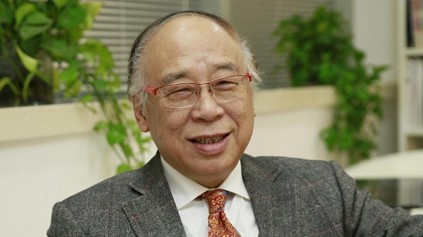
SEND ME A BIBLE. David Wang
A Chinese doctor wrote to Asian Outreach and requested a Bible. Asian Outreach is an organization working in Hong Kong and then David Wang writes:
When we arrived in China, we sought out the man. He was a chief physician at a hospital and a member of the Communist Party. When we came into his office, he wrote immediately his home address on a sheet of paper.
"Not now, not now, but came home to me tonight," he said. In the evening we came to his residence. In Chinese context, this was a very nice home. He had a wife and two children - and was therefore an atheist and Consultant. And he would now get hold of a Bible?!
The doctor told; "I've never seen God. I've never been in a church or seen a Bible. But now I believe. A few months ago, a woman was sent here. She had been involved in an accident at the farm where she lived. A large stone had come loose and had fallen down and had crushed her chest. A quick glance at the damage was more than enough for me to see that here there was nothing to do. The ribs stuck both outwards and inwards. She was bleeding a lot and cast up large amounts of blood.
Despite all of our equipment, there was nothing we could do. Anyway, I took her into the x-ray to get pictures for our medical records. Then I noticed that some ribs even stuck out through her one lung. I gave her medicine for pain and put her in a bed. Then I heard her say something. I had heard many strange sounds from dying people; but this was something entirely different. As she lay unconscious, she whispered, "Jesus, save me! Jesus, save me! "
I went home and ate dinner there and then I didn't think more about this woman. But the following morning, when I arrived at the hospital, I walked past the woman's bed. There I saw her sitting upright with a big bowl of rice where she ate with good appetite! I was shaken.
"What are you doing?" I shouted. She got scared and handed me risskålen - while she told me that a nursing assistant had given her food - but if she was not allowed to eat, so I just had to take food from her, she said.
I first examined her name. It was correct. I checked the number. It was correct, too. I examined, from where she came, and where she worked. It was the same woman!
Shaken, I took her into the x-ray and took new pictures. Since I could dumbfounded look that every bone in her chest was completely healed, and the lungs were completely intact.
"I've never seen God, never been to church, never seen a Bible; but now I believe. Now I have seen God's omnipotence. He lives and he is mighty!"
"In the East".
E. Campbell translated
START
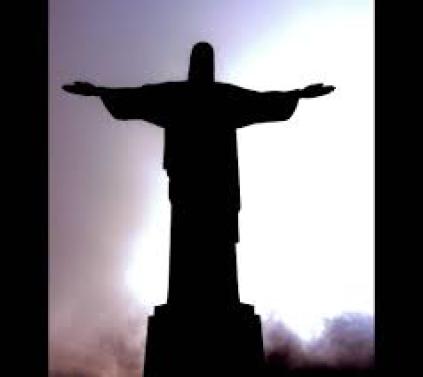
COME
TODAY IF YOU HEAR HIS VOICE ...
A servant of the Lord tells about this poignant event in his ministry for God:
"I once visited an elderly laborer who said he knew why I was coming to him, I would tell him that he should repent and convert. He was aware that he once had to get serious about this and be converted; but yet he did not really want to take the step. "
When I asked him what he thought was the real reason why he wasn't yet totally ready to take the step and become a follower of Jesus, he admitted frankly that he had a strong craving for alcohol, although it did not often happen that he was drunk. He understood that the Lord wanted him to quit if he surrendered to him, and therefore continually postponed the repentance.
As we talked, he confided to me that God himself several times had clearly called on him so that he understood that now was the time; but he had pushed it over and over again. The first time was the horses that were harnessed to a heavy cart, which he drove. The horses were frightened, and left him in wild panic. He had fallen off the wagon and was run over subsequently. It was still a wonder for him that he had even recovered from this.
The second time he was walking a dark autumn night in the fog across a field. He lost direction and came in the proximity of a place where the railroad went into a deep ravine. This he did not notice and therefore he had slid down the hill. Here he hurt himself because he hit his head so hard against the railroad that he fainted and was lying across the rail.
When he came to himself again, he felt very miserable and weak and could barely move. While he was there he recognized the sound of a train approaching, and as he turned his head he saw the lights on the locomotive clearly in the distance.
Fear gave him so much energy that he was struggled a bit away from the iron rails, and now he rolled into the ditch on the other side of the tracks. As soon as the train sped past. Again he fell into unconsciousness, and was found by a railway worker about two hours later. He was then smeared with blood and stiff with cold. Again he was saved from certain death.
The third time, God's calling had sounded to him was when one of his sons had been carried home badly injured. He had climbed in a quarry with some friends and had fallen down. For months after this the life of the boy had been in a very critical state, and the parents had been tormented until he eventually began to recover.
All this this man told me, and so he ended with these words: "During all of these events, I had a feeling that God was calling me and wanted me to repent. Yet this has not happened; but I will certainly do it sometimes. "
I spoke long and earnestly with him about how dangerous it is to postpone such an important matter and that it could be too late. The man nodded good-naturedly to all, I said. I saw him twice more; but there was still nothing happened, everything was still without any change in him.
About a year after this conversation his time had come. It was an evening they held a family party at his home, and he had been drinking more than he used to. When he had gone to bed, he had asthma, which he often suffered from, and therefore went forth on the floor to open a window so he could get some fresh air. Here he must have stretched too far forward, he fell on his head out the window, and later that night the night watchman found him crushed in the street. So God had called in vain.
”So, as the Holy Spirit says: “Today, if you hear his voice, do not harden your hearts...”
Heb. 3, 7-8 NIV
E. Campbell translated
HOME
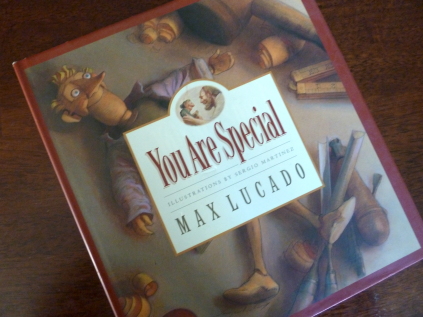
You are special
April 30, 2017
YOU ARE SPECIAL
”Though the mountains be shaken and the hills be removed, yet my unfailing love for you will not be shaken ...”
Isiah 54.10 NIV
The China missionary John Bentley gave all the children at a Chinese orphanage Max Lucado's book, "You are Special". In China, boys are preferred rather than girls. Healthy infants are more wanted than weak and sick. The truth is that children who are disabled in sight and hearing have very little opportunities to have a healthy and active life. The message they receive from their own history and culture is: You have no value.
In Lucado's book, we hear about Punchinello, a wooden boy in a village with wooden men. The villagers put stars on "winners" and spots on "losers". Punchinello had many spots, and the villagers gave him spots for no reason. But when he saw Eli who had made him, Eli stated that he was not to take care of what others believed about him. "I created you," said Eli, "and I make no mistake." Punchinello had never heard such words before. But when he did, as Eli said, the spots began to fall off and when the children in the orphanage heard those words, their world began to change.
John Bentley writes how it was to read the story for these children and how immensely the impact was on those who were seated there and that they just about swallowed every word; "When it was clear to them that they were something special, simply because they were created by a loving creator, they all began to cry - even their teacher. That was powerful! "
Open your Bible today. There you get God's opinion about you and then build your life on it. It's the only meaning that counts and is immensely important! The Lord says, ”Though the mountains be shaken and the hills be removed, yet my unfailing love for you will not be shaken ...”
HOME
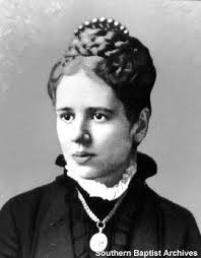
I LOVE TO TELL THE STORY
KATE HANKEY
1834 - 1911
I Love to Tell the Story and Tell Me the Old, Old Story are sister songs.
They were both written by Kate Hankey. Arabella Katherine Hankey was born in 1834. She lived in London with her family, but was influenced by John Wesley and his work. At the age of eighteen, she organized a Bible study for girls working in the factory. Kate was a Sunday School teacher that organized classes for both the rich and poor. Kate was musically inclined and often wrote melodies with her poems.
In 1866, at the age of thirty, Kate became ill. Her illness and recovery left her bedridden during her long convalescence. While homebound, Kate wrote a lengthy poem about the life of Christ. The poem was divided into two sections. The first was titled “The Story Wanted” and the second part was titled “The Story Told.” Each section consisted of fifty verses.
After her recovery, Major General Russell read the poem at the International Convention of Young Men’s Christian Association. Everyone was left breathless by the time he finished reading the poem.
Bishop William Doane was in the audience and put the first part of the poem to music. This became known as the hymn “Tell Me the Old, Old Story.”
William G. Fischer put the second part to music. This is the hymn we now know as “I Love To Tell the Story.”
I Love To Tell the Story first appeared in a hymnal in 1869. The hymn became a popular Moody Sankey song during their crusades.
Kate had such a heart for missions, that she later donated all of her income to missions work. She served as a missionary with her brother in Africa. Kate Hankey overcame her illness and lived to be 77, dying in 1911.
lyrics: Kate Hankey (1866)
music: William G. Fisher (1869)
Press to hear hymn
I love to tell the story
Of unseen things above,
Of Jesus and His glory,
Of Jesus and His love.
I love to tell the story,
Because I know ’tis true;
It satisfies my longings
As nothing else can do.
Refrain
I love to tell the story,
’Twill be my theme in glory
To tell the old, old story
of Jesus and His love.
I love to tell the story;
’Tis pleasant to repeat
What seems each time I tell it,
More wonderfully sweet.
I love to tell the story;
For some have never heard
The message of salvation
From God’s own holy Word.
Refrain
I love to tell the story,
’Twill be my theme in glory
To tell the old, old story
of Jesus and His love.
I love to tell the story;
For those who know it best
Seem hungering and thirsting
To hear it like the rest.
And when, in scenes of glory,
I sing the new, new song,
’Twill be the old, old story,
That I have loved so long.
Refrain
I love to tell the story,
’Twill be my theme in glory
To tell the old, old story
of Jesus and His love.
HOME
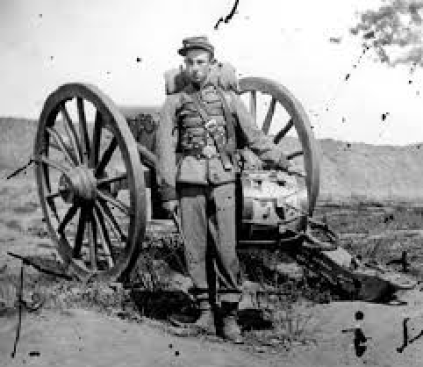
DRUMMER BOY
PRESS THIS LINK TO LISTEN TO THE STORY
Two or three times in my life God in His mercy touched my heart, and twice before my conversion I was under deep conviction.
During the American war, I was surgeon in the United States army, and after the battle of Gettysburg there were many hundred wounded soldiers in my hospital, amongst whom were twenty-eight who had been wounded so severely that they required my service at once. Some whose legs had to be amputated, some their arms, and others both their arm and leg. One of the latter was a boy who had been but three months in the service, and being too young for a soldier. He enlisted as a drummer. When my assistant surgeon and one of my stewards wished to administer chloroform, previous to the amputation, he turned his head aside and positively refused to receive it. When the steward told him that it was the doctor’s orders, he said: “Send the doctor to me.”
When I came to his bedside, I said: “Young man, why do you refuse chloroform? When I found you on the battlefield you were so far gone that I thought it hardly worth while to pick you up; but when you opened those large blue eyes I thought you had a mother somewhere who might, at that moment, be thinking of her boy. I did not want you to die on the field, so ordered you to be brought here; but you have now lost so much blood that you are too weak to endure an operation without chloroform, therefore you had better let me give you some." He laid his hand on mine, and looking me in the face, said: "Doctor, one Sunday afternoon, in the Sabbath-school, when I was nine and a half years old, I gave my heart to Christ. I learned to trust Him then; I have been trusting him ever since, and I can trust Him now. He is my strength and my stimulant. He will support me while you amputate my arm and leg.” I then asked him if he would allow me to give him a little brandy. Again he looked me in the face saying: " Doctor, when I was about five years old my mother knelt by my side, with her arm around my neck, and said: ‘ Charlie, I am now praying to Jesus that you may never know the taste of strong drink your papa died a drunkard, and went down to a drunkard’s grave, and I promised God, if it were His will that you should grow up, that you should warn young men against the bitter cup.’ I am now seventeen years old, but I have never tasted anything stronger than tea and coffee, and as I am, in all probability, about to go into the presence of my God, would you send me there with brandy on my stomach?”
The look that boy gave me I shall never forget. At that time I hated Jesus, but I respected that boy’s loyalty to his Savior; and when I saw how he loved and trusted Him to the last, there was something that touched my heart, and I did for that boy what I had never done for any other soldier
I asked him if he wanted to see his chaplain. "Oh! Yes, sir,” was the answer.
When Chaplain R. came, he at once knew the boy from having often met him at the tent prayer-meetings, and taking his hand said: “Well, Charlie, I am sorry to see you in this sad condition.” "Oh, I am all right, sir," he answered. “The doctor offered me chloroform, but I declined it; then he wished to give me brandy, which I also declined; and now, if my Savior calls me, I can go to Him in my right mind." "You may not die, Charlie," said the chaplain but if the Lord should call you away, is there anything I can do for you after you are gone? " "Chaplain, please put your hand under my pillow and take my little Bible; in it you will find my mother’s address; please send it to her, and write a letter, and tell her that since the day I left home I have never let a day pass without reading a portion of God’s word, and daily praying that God would bless my dear mother; no matter whether on the march, on the battle-field, or in the hospital.” “Is there anything else I can do for you, my lad?” asked the chaplain. “ Yes; please write a letter to the superintendent of the Sands-street Sunday-school, Brooklyn, N.Y., and tell him that the kind words, many prayers, and good advice he gave me I have never forgotten; they have followed me through all the dangers of battle; and now, in my dying hour, I ask my dear Savior to bless my dear old superintendent. That is all."
Turning towards me he said: “Now, doctor, I ant ready; and I promise you that I will not even groan while you take off my arm and leg, if you will not offer me chloroform.” I promised, but I had not the courage to take the knife in my hand to perform the operation without first going into the next room and taking a little stimulant myself to perform my duty.
While cutting through the flesh, Charlie Coulson never groaned; but when I took the saw to separate the bone, the lad took the corner of his pillow in his mouth, and all that I could hear him utter was: “O Jesus, blessed Jesus! Stand by me now.” He kept his promise, and never groaned.
That night I could not sleep, for whichever way I turned I saw those soft blue eyes, and when I closed mine the words, "Blessed Jesus, stand by me now,” kept ringing in my ears. Between twelve and one o’clock I left my bed and visited the hospital; a thing I had never done before unless specially called, but such was my desire to see that boy. Upon my arrival there I was informed by the night steward that sixteen of the hopeless cases had dies, and been carried down to the dead-house. "How is Charlie Coulson, is he among the dead?” “I asked. “No, sir," answered the steward, “he is sleeping as sweetly as a babe.” When I came up to the bed which he lay, one of the nurses informed me that, about nine o clock, two member of the Y.M.C.A. came through the hospital to read and sing a hymn. They were accompanied by Chaplain R., who knelt by Charlie Coulson’s bed, and offered up a fervent and soul-stirring prayer; after which they sang, while still upon their knees, the sweetest of all hymns, "Jesus, lover of my soul,: in which Charlie joined. I could not understand how that boy, who had undergone such excruciating pain, could sing.
Five days after I had amputated that dear boy’s arm and leg, he sent for me, and it was from him on that day I heard the first gospel sermon. “Doctor,” he said, “my time has come; I do not expect to see another sun rise; but thank God, I am ready to go; and before I die I desire to thank you with all my heart for your kindness to me. Doctor, you are a Jew, you do not believe in Jesus; will you please stand here and see me die, trusting my Savior to the last moment of my life?” I tried to stay, but I could not; for I had not the courage to stand by and see a Christian boy die rejoicing in the love of a Jesus whom I had been taught to hate, so I hurriedly left the room. About twenty minutes later a steward, who found me sitting in my private office covering my face with my hand, said: ”Doctor, Charlie Coulson wishes to see you.” “I have just seen him," I answered, “and I cannot see him again." "But, doctor, he says he must see you once more before hoe dies.” I now made up my mind to see him, say an endearing word, and let him die; but I was determined that no word of his should influence me in the least so far as his Jesus was concerned. When I entered the hospital I saw he was sinking fast, so I sat down by his bed. Asking me to take his hand, he said, " Doctor, I hove you because you are a Jew; the best friend I have found in this world was a Jew.” I asked him who that was. He answered: “Jesus Christ, to whom I want to introduce you before I die; and will you promise me, doctor, that what I am about to say to you, you will never forget?” I promised; and he said: “Five days ago, while you amputated my arm and leg, I prayed to the Lord Jesus Christ to convert your soul.”
These words went deep into my heart. I could not understand how, when I was causing him the most intense pain, he could forget all about himself and think of nothing but his Savior and my unconverted soul. All I could say to him was: “Well, my dear boy, you will soon be all right.” With these words I left him, and twelve minutes later he fell asleep, "safe in the arms of Jesus."
Hundreds of soldiers died in ray hospital during the war; but I only followed one to the grave, and that one was Charlie Coulson, the drummer boy; and I rode three miles to see him buried. I had him dressed in a new uniform, and placed in an officer’s coffin, with a United States flag over it.
That boy’s dying words made a deep impression upon me. I was rich at that time so far as money is concerned, but I would have given every penny I possessed if I could have felt towards Christ as Charlie did; but that feeling cannot be bought with money. Alas! I soon forgot all about my Christian soldier’s little sermon, but I could not forget the boy himself. I now know that at that time I was under deep conviction of sin; but I fought against Christ with all the hatred of an orthodox Jew for nearly ten years, until, finally, the dear boy’s prayer was answered, and God converted my soul.
About eighteen months after my conversion, I attended a prayer-meeting one evening in time city of Brooklyn. It was one of those meetings when Christians testify to the loving kindness of their Savior. After several of them had spoken, an elderly lady arose and said "Dear friends, this may be the last time that it is my privilege to testify for Christ. My family physician told me yesterday that my right lung is nearly gone, and my left bong is very much affected; so at the best I have boot a short time to be with you but what is left of it belongs to Jesus. Oh! it is a great joy to know that I shall meet my boy with Jesus in heaven.
My son was not only a soldier for this country, but also a soldier for Christ. He was wounded at the battle of Gettysburg, and fell into the hands of a Jewish doctor, who amputated his arm and leg, but he lived five days after the operation. The chaplain of the regiment wrote me a letter, and sent me my boy’s Bible. In that letter I was informed that my Charlie in his dying hour sent for that Jewish doctor, and said to him "Doctor, before I die I wish to tell you that five days ago, while you amputated my arm and leg, I prayed to the Lord Jesus Christ to convert your soul.
When I heard this body’s testimony, I could sit still no longer. I left my seat, crossed the room and taking her hand, said “God bless you, my dear sister; your boy’s prayer has been heard and answered. I am the Jewish doctor for whom your Charlie prayed, and his Savior is now my Savior.” -- Dr. M.L.R
HOME

HEAR THE ARONITIC
BLESSING SUNG IN:
NORWEGIAN
ENGLISH
HEBREW
Betty From Jensen
In the bottle of drinking water, which I have just bought, it says "baraka". Baraka is an Arabic word, which means "blessing." The four years I lived in Cairo, it was a great greeting to get the many times, we were forced to buy drinking water in bottles. It was vital with water – this we felt particularly well in the warm Egyptian climate. Such a bottle of either a ½ liter or a whole liter of water was quickly gone! And then you drank another "blessing"!
To drink blessing - is to live with the Lord's blessing and to bring it along with you on your journey through life as something vital. That is what God offers us at each worship service where the blessing is given to us.
The aronitic blessing contains our wishes for both the present and the future. The blessing belongs to God's face - that he lets it "shine on you" and "turns his face toward you". It is a picture of the chieftain who is sitting with his bent head listening when the stranger is allowed to stand before him with his wishes.
The aronitic blessing is in three stages and expresses the wish to be preserved from all evil, the wish of God's grace and the wish of God's peace.
The blessing includes
Recognition: giving one's blessing is a recognition, despite what has happened
Strength: God's blessing is a special force or power, a source that emerges from Christ
Result: blessing is God's promise of his presence no matter what happens and a living hope that follows us now and always.
THE BLESSING & IN HEBREW
”“‘“The Lord bless you and keep you;
the Lord make his face shine on you and be gracious to you;
the Lord turn his face toward you and give you peace.”’ ”
Numbers 6.23 to 26 NIV (The Aronitic blessing)
I wish it is possible for us to drink blessings in future too?
HOME
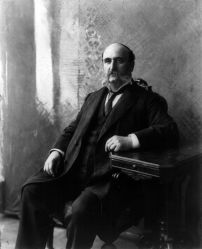
A CHRISTMAS GREETING
TRÝST FYRI AT HOYRA
"SAVIOUR, LIKE A SHEPHERD LEAD US"
A CHRISTMAS GREETING
The well known missionary Dwight Moody, who was used by God in a very special way (1837-1899), always had a God-blessed singer with him. His name was Ira Sankey (1840-1908). It is said about him that he sang just as many people into heaven as Moody preached into heaven.
One year on Christmas Eve itself, Mr. Sankey was aboard a steamer sailing down the Delaware River. Many people had gathered on the deck and when Mr Sankey was among those he was asked to sing. He prayed to God for help in finding the right song - and immediately his eyes wandered up to the clear sky and he began the song:
"Savior, like a Shepherd lead us,
much we need Thy tender care! "
A wonderful peace and tranquility descended upon them all onboard the ship as the beautiful voice carried the words across the deck and the quiet river. Everyone was brought into motion.
After the song, a man came forward and asked Mr. Sankey, "Have you ever done Army service in the Union Army?"
Mr Sankey admitted. Then the stranger said: "I was also in the army at that time, just on the opposite side, ie. In the Confederate Army. And the night you were on duty, I was also there in the same errand as you, and I saw you, took the rifle and aimed at you, and was just about to press the trigger. You stood in the middle of the moonlight, but I was lying in the shade. The moment I was about to press, you lifted your head toward the sky and began to sing the beautiful song:
"Savior, like a Shepherd lead us,
much we need Thy tender care! "
When I heard this, it became completely impossible for me to press the trigger, ”the man ended his tale. (Jewish hope)
In Thy pleasant pastures feed us,
For our use Thy folds prepare:
Savior, like a shepherd lead us,
Much we need Thy tender care;
In Thy pleasant pastures feed us
For our use Thy folds prepare:
Blessed Jesus, blessed Jesus,
Thou hast bought us, Thine we are;
Blessed Jesus, blessed Jesus,
Thou hast bought us, Thine we are.
We are Thine; do Thou befriend us,
Be the Guardian of our way;
Keep Thy flock, from sin defend us,
Seek us when we go astray:
Blessed Jesus, blessed Jesus,
Thou hast bought us, Thine we are;
Blessed Jesus, blessed Jesus,
Thou hast bought us, Thine we are.
Thou hast promised to receive us,
Poor and sinful though we be;
Thou hast mercy to relieve us,
Grace to cleanse, and power to free:
Blessed Jesus, blessed Jesus,
Thou hast bought us, Thine we are;
Blessed Jesus, blessed Jesus,
Thou hast bought us, Thine we are.
TRÝST FYRI AT HOYRA
HEIM
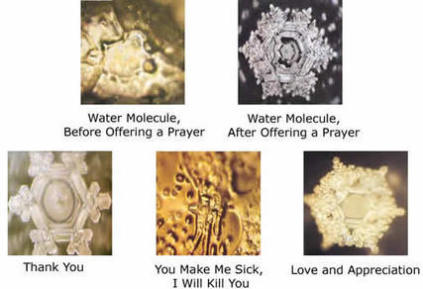
ASK GOD TO BLESS THE FOOD IN THE NAME OF JESUS
HERE SOME AMAZING SCIENTIFIC MATERIAL ABOUT WATER
Thurman Scrivner
”Gracious words are a honeycomb, sweet to the soul and healing to the bones. ”
Prov. 16.24 NIV
God's word says that kind words are healing to your bones. Should we ever
speak other than kind words? Definitely not! We should not speak hard and
uncompromising words in the heat of the moment. We should speak gracious
and mild words.
A few years ago we were in western Texas. There is a Christian TV channel,
a bit like the Norwegian ”Vision Norway”. We have broadcasts there 4-5
times a week. A man came there, who was a doctor and scientist. He
participated in a broadcast so that he could demonstrate what he had achieved
with his research.
He took some water crystals and examined them thorougly under a
magnifying glass, a microscope, so that you were able to see how the water
molecules looked like. If you play good Christian music at the molecules,
they will completely change. If you pray for them, say, "Father bless this
water in the name of Jesus," then the molecules change. They are so
beautiful. It is wonderful. But you can also talk something negative about
them, and then they become ugly and abominable. If you play hard rock
music with them, they become completely wild and unruly.
When I saw what happened to this water, I can assure you that I will never
again drink a drop of water without first asking the Lord to bless this water in
the name of Jesus.
When I saw this broadcast, I came to think of something else. In some places
around the world there are concerts with hard rock. There are young girls and
boys coming in thousands to listen to this musical dirt. Some of this music
spits on the name of Jesus, and you might wonder why some of these young
people, who listen to this kind of music, become completely wild and unruly.
But the human body consists of 75% water and the brain of 85% water. When
something like this happens with water in a glass, how should it be with the
human body when these people shout and scream abominable things through
their music. What do you think happens with the bodies of these youngsters?
It will affect them in a terrible way; but if only you could just see the
wonderful influence that happens with the molecules through the mild music
and prayer in the name of Jesus, you would do exactly like me, you would
talk to the food and water each time and bless them in the name of Jesus
before you consumed any of it.
God has promised us in his word: ”Worship the Lord your God, and his
blessing will be on your food and water. I will take away sickness from
among you, ...” Ex. 23.25 NIV
But even though he has promised to do this for me, I always say a little
prayer over the food to be double protected.
Consider this as a believer.
START






